Living Willow from Willows Nursery
Willow VarietiesWe are now taking advance orders for delivery and planting from early December 2024 to late February 2025.
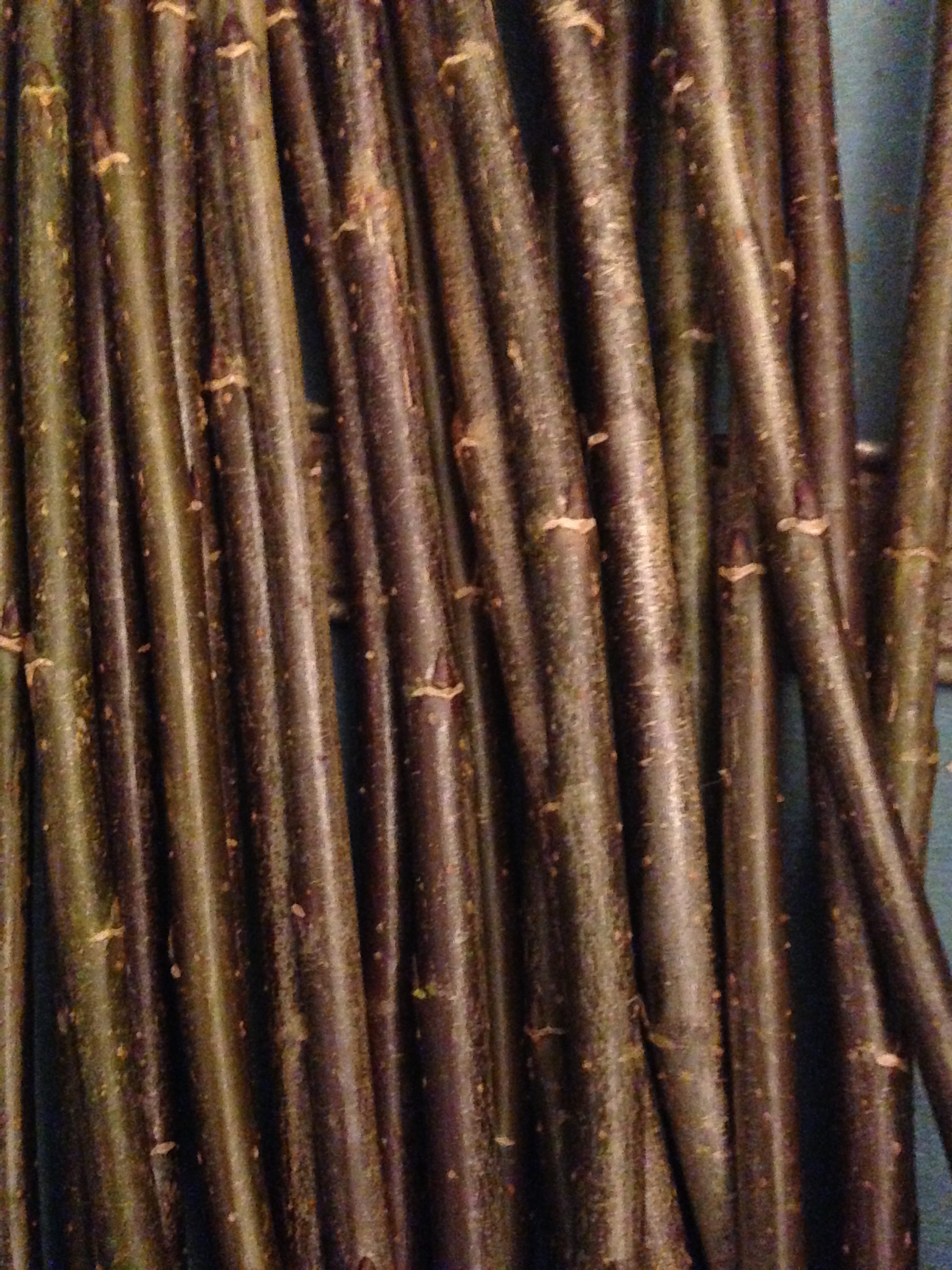
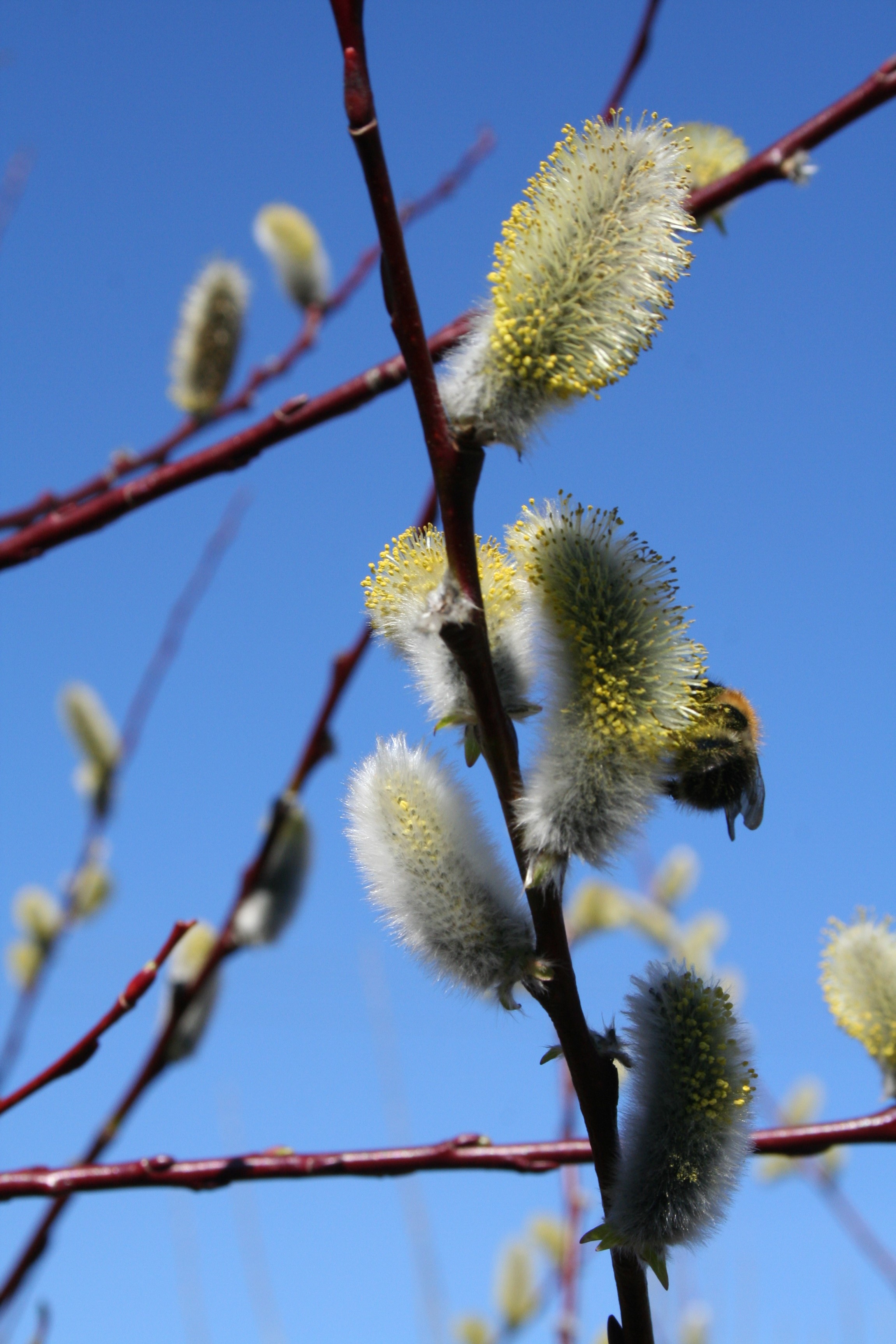
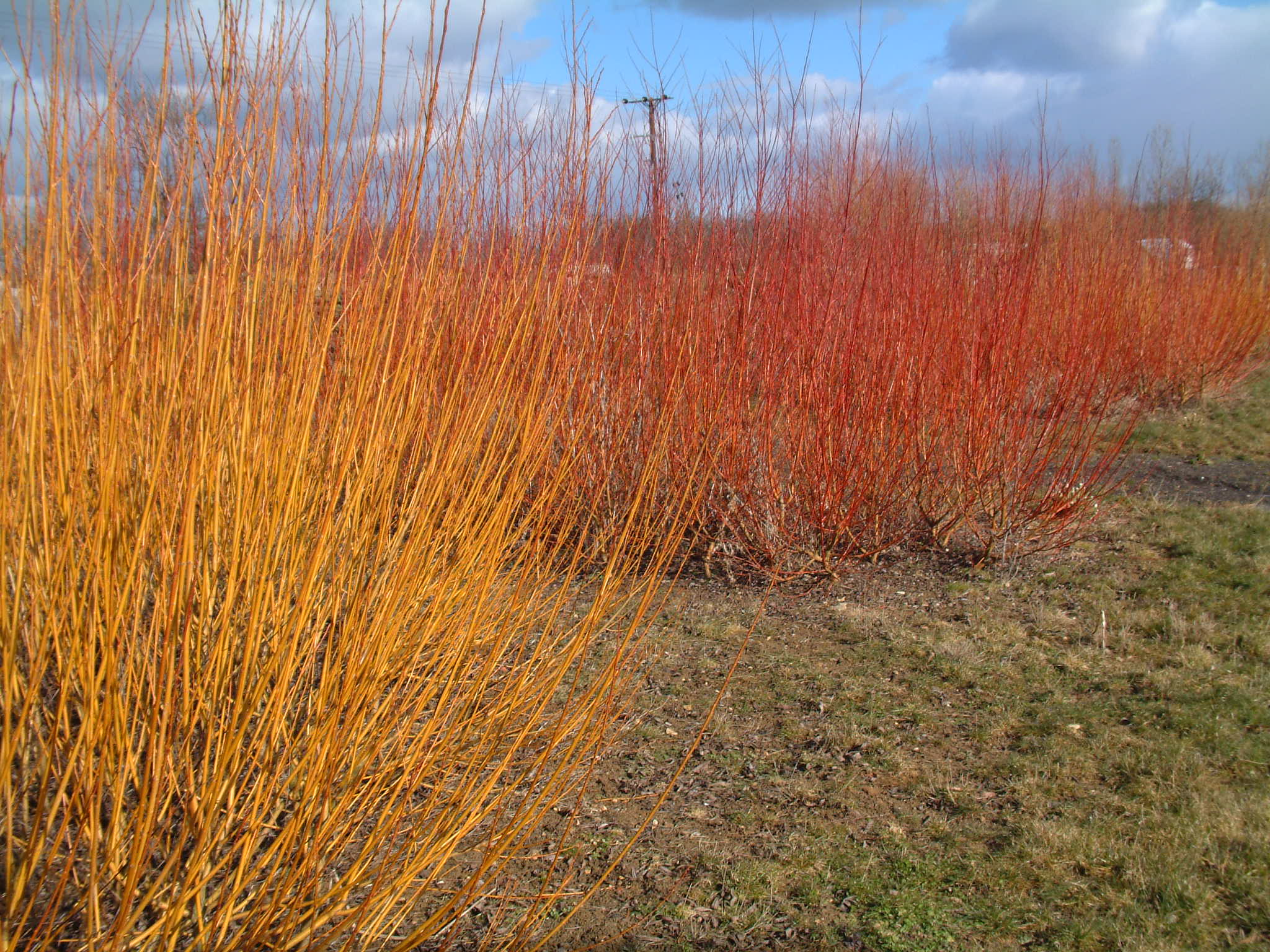
There are a vast number of different varieties of willow which are grown for many different
uses – windbreaks, willow structures, weaving, winter colour and catkins to name a few.
We have the following willow varieties for sale
All are available in bundles of 10 UNROOTED cuttings of the same variety in 2 sizes :
Either, 10″/25 cm long at £8.00 per 10 of the same variety.
Or, 24″/60 cm long * at £17.00 per 10 of the same variety.
(* The longer cuttings are more suitable if you need to plant to a greater depth, for slope stabilisation,
for example, or if you would just like growth starting a little higher from the ground).
Alternatively, if you don’t want to order in such quantities, but would like a mix of varieties,
we also have special collections of 9 UNROOTED cuttings of three varieties in the 2 sizes. If you would like
a different combination of varieties to those in our online shop please select the ‘Your Choice Special Collection’
and tell us the 3 varieties you would like in the ‘Customer Notes’ section as you order.
Short cuttings are sent by First Class Post or EVRi – at a cost of £4.00 per order.
You can place an order securely in our Online Shop.
**We can offer longer/’chunkier’ cuttings, if they would suit your purposes better, but they will need
to be collected or sent by carrier at a cost of £19 for delivery – please get in touch to discuss.
Salix Viminalis ‘Bowles Hybrid’ is also available as long whips.
Please visit our Other Willow Prices and Living Willow Kit Prices pages for details.
Salix Viminalis “Bowles Hybrid”
One of the most vigorous and hardy varieties of willow commonly available. Because of its fast rate of growth (up to 10 feet (3 m) or more in one year) it makes an excellent windbreak, and it tolerates wet, heavy soils and extreme conditions, such as cold winds on exposed sites or salty winds on the coast. Growth can be cut back each winter, providing heavy weaving material, or rods for living willow structures, and encouraging denser fresh growth, or left to grow taller and thicker which can be cut in later years for logs.
REF W777
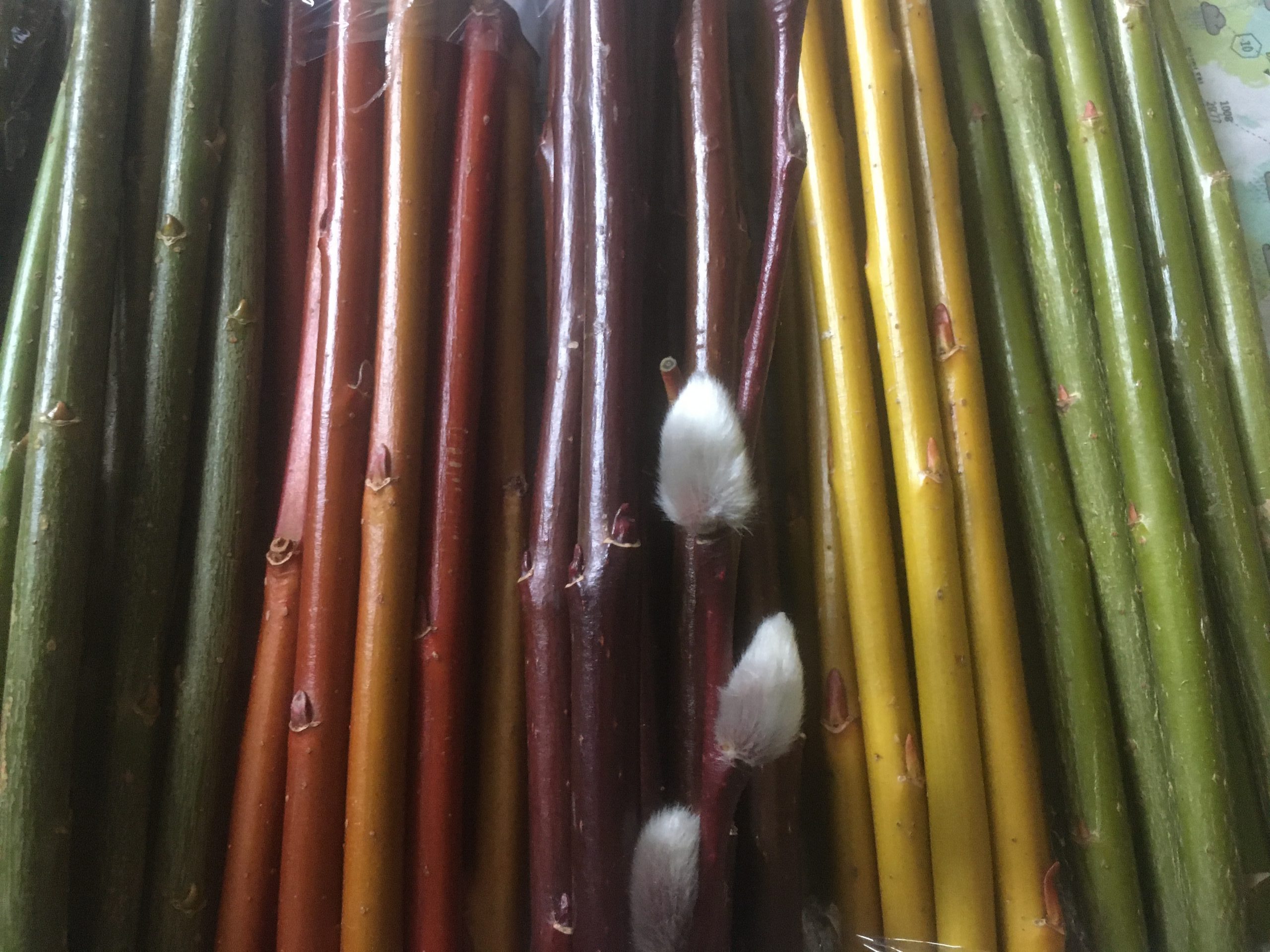
A selection of willow cuttings prepared ready to send out.
Salix Triandra (Almond leaved willow)
This species prefers slightly less harsh conditions to Salix Viminalis, although is still very vigorous providing at least 6 ft (1.8 m) of fresh growth each year. It is necessary to cut back annually to obtain the fresh growth, which is ideal for fine rods for basket making. The straight rods of growth make this form of Willow very popular for basket making.
We offer three varieties of Triandra :-
Salix Triandra “Black Maul” Brown stems.
REF W778
Salix Triandra “Norfolk” Very dark brown stems.
REF W779
Salix Triandra “Petite Grisette” Green stems.
REF W780
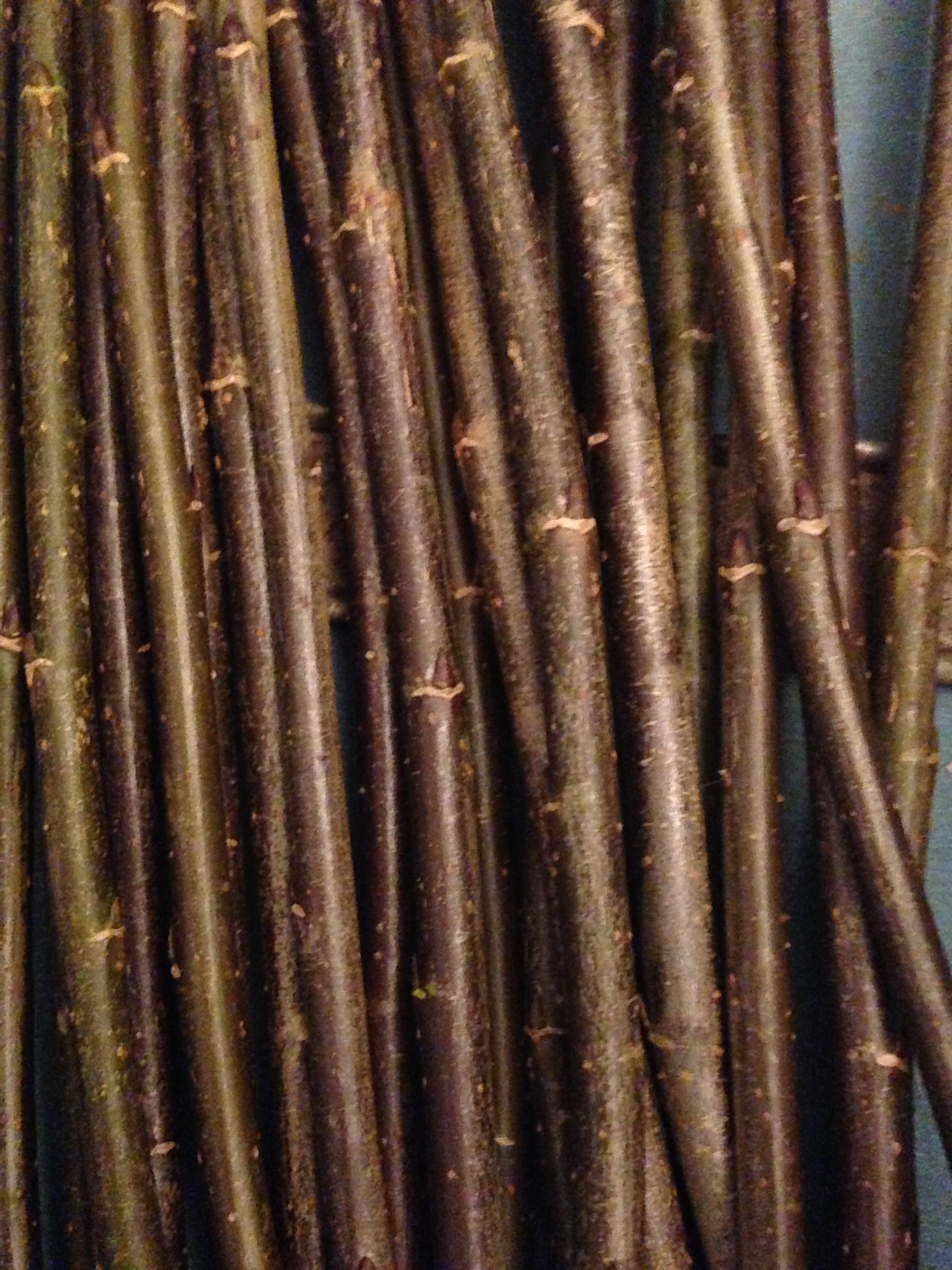
Salix Triandra 'Black Maul'
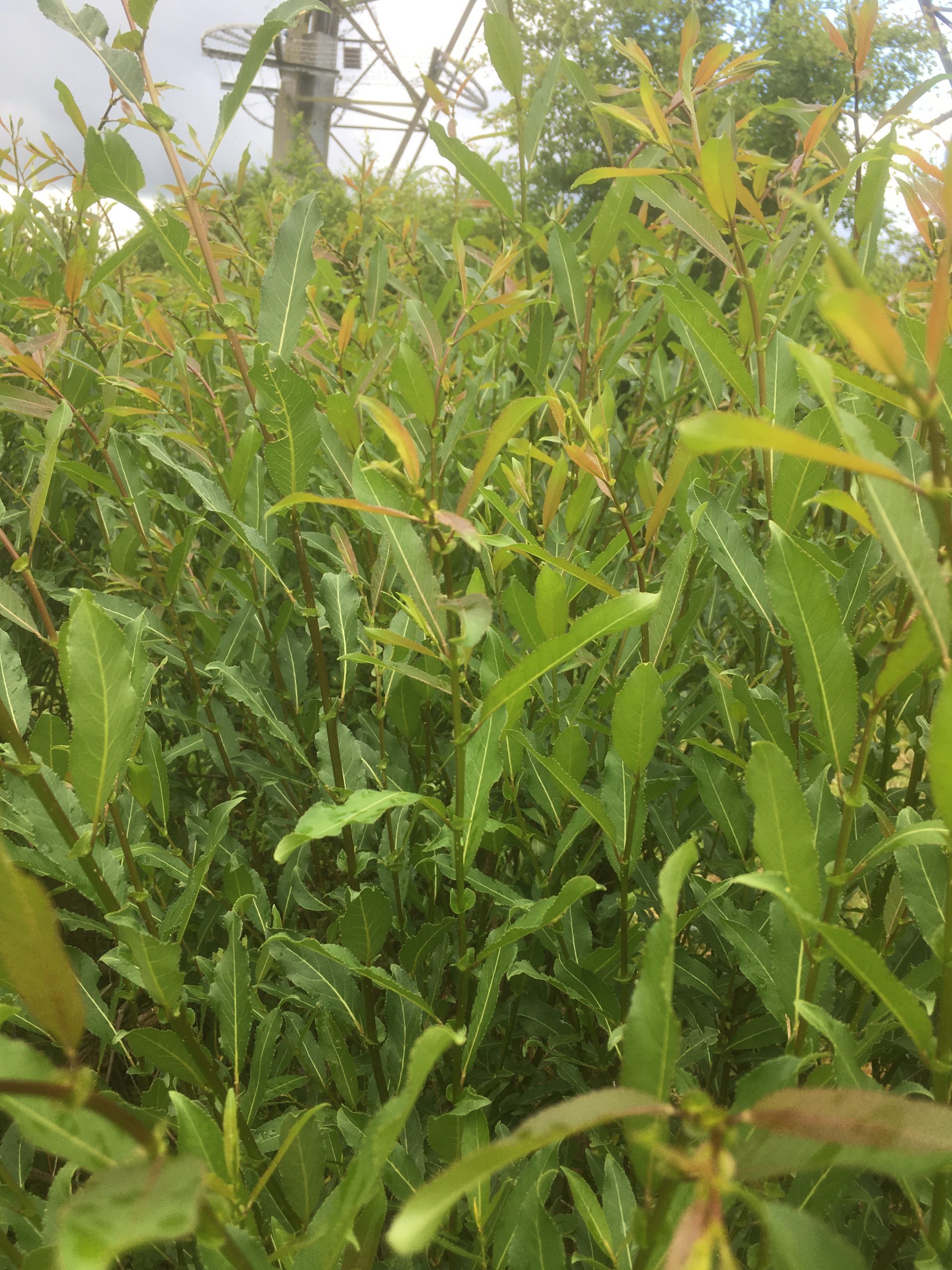
Salix Triandra 'Black Maul'
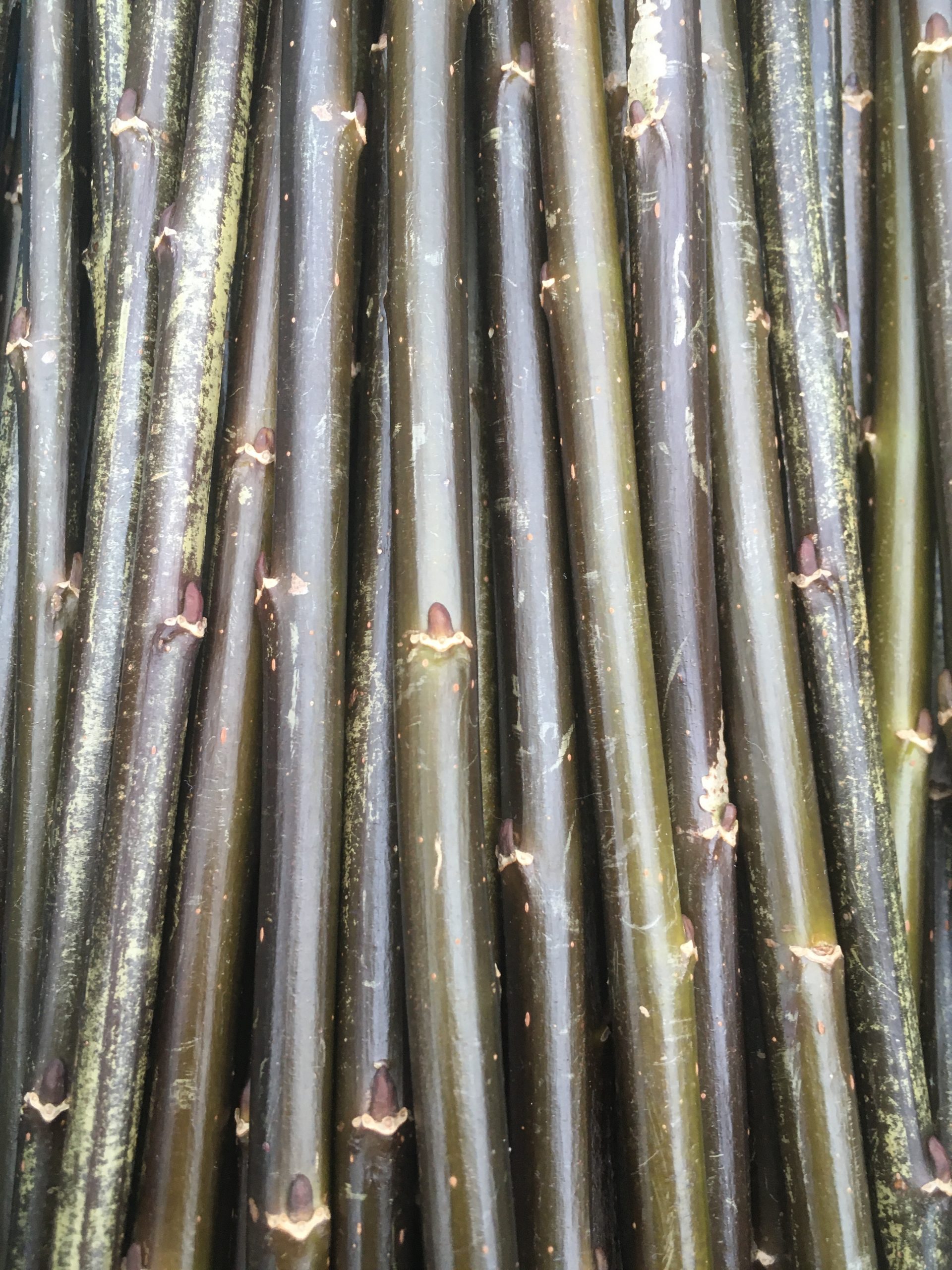
Salix Triandra 'Norfolk'
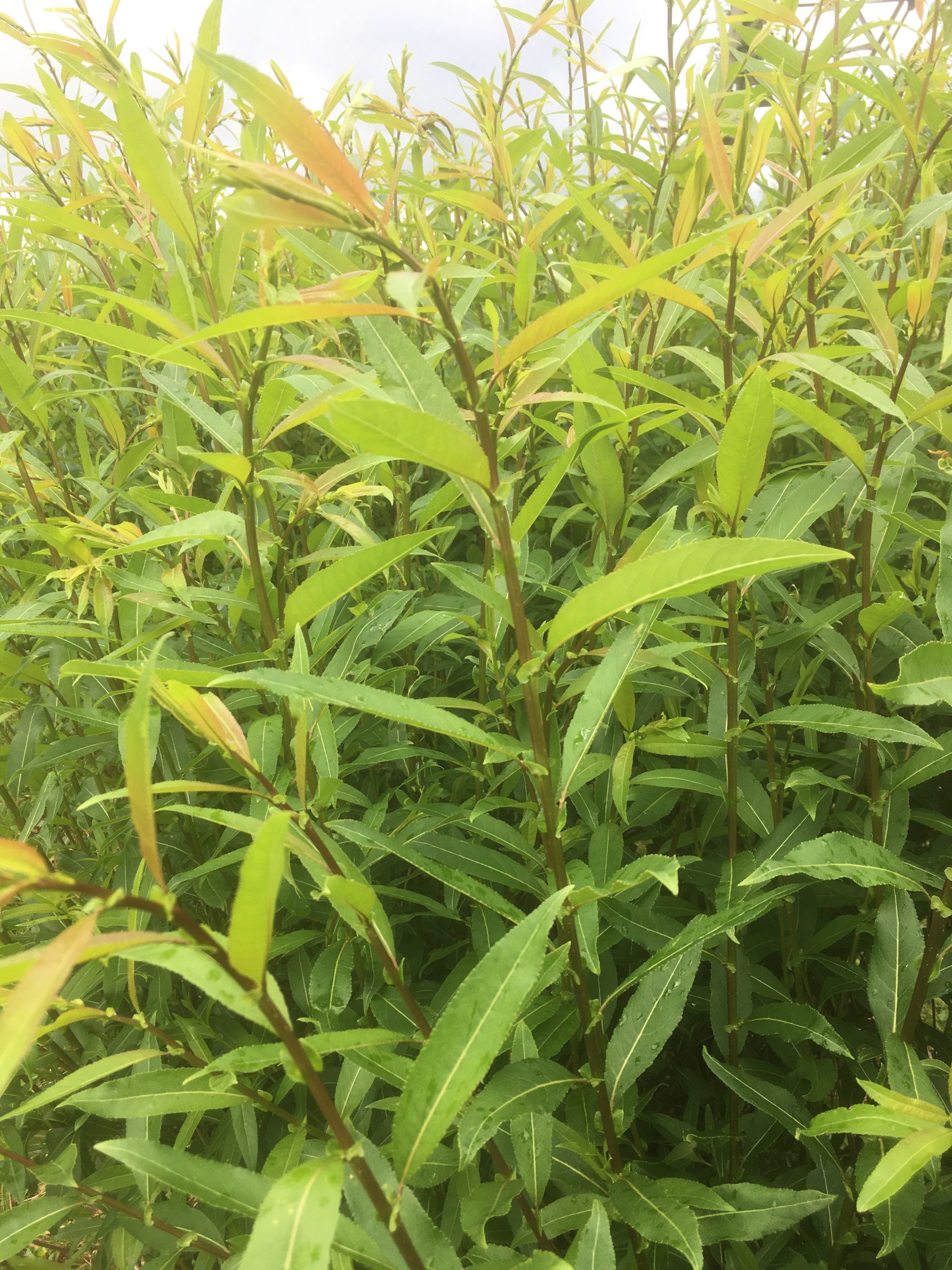
Salix Triandra 'Norfolk'
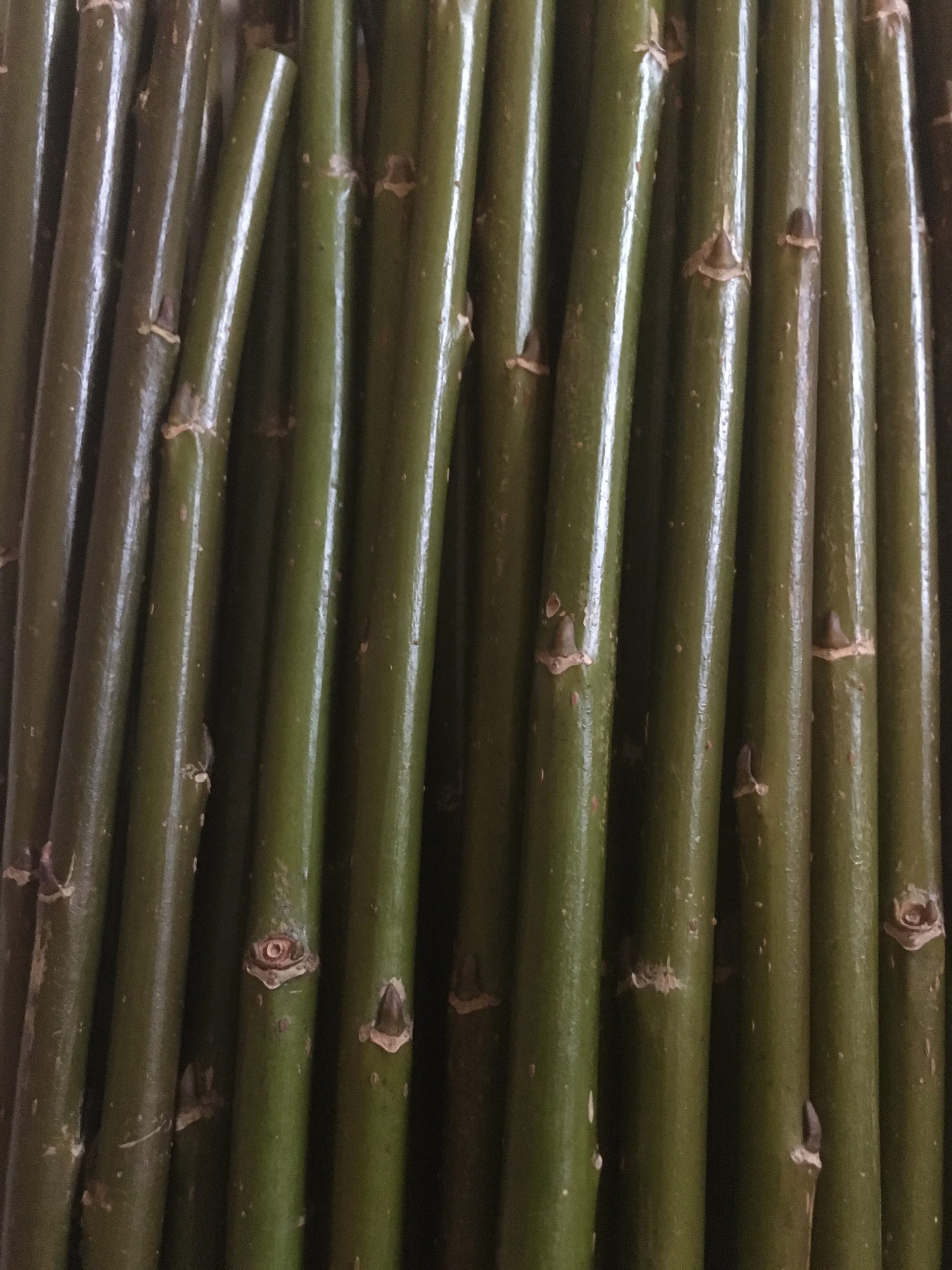
Salix Triandra 'Petite Grisette'
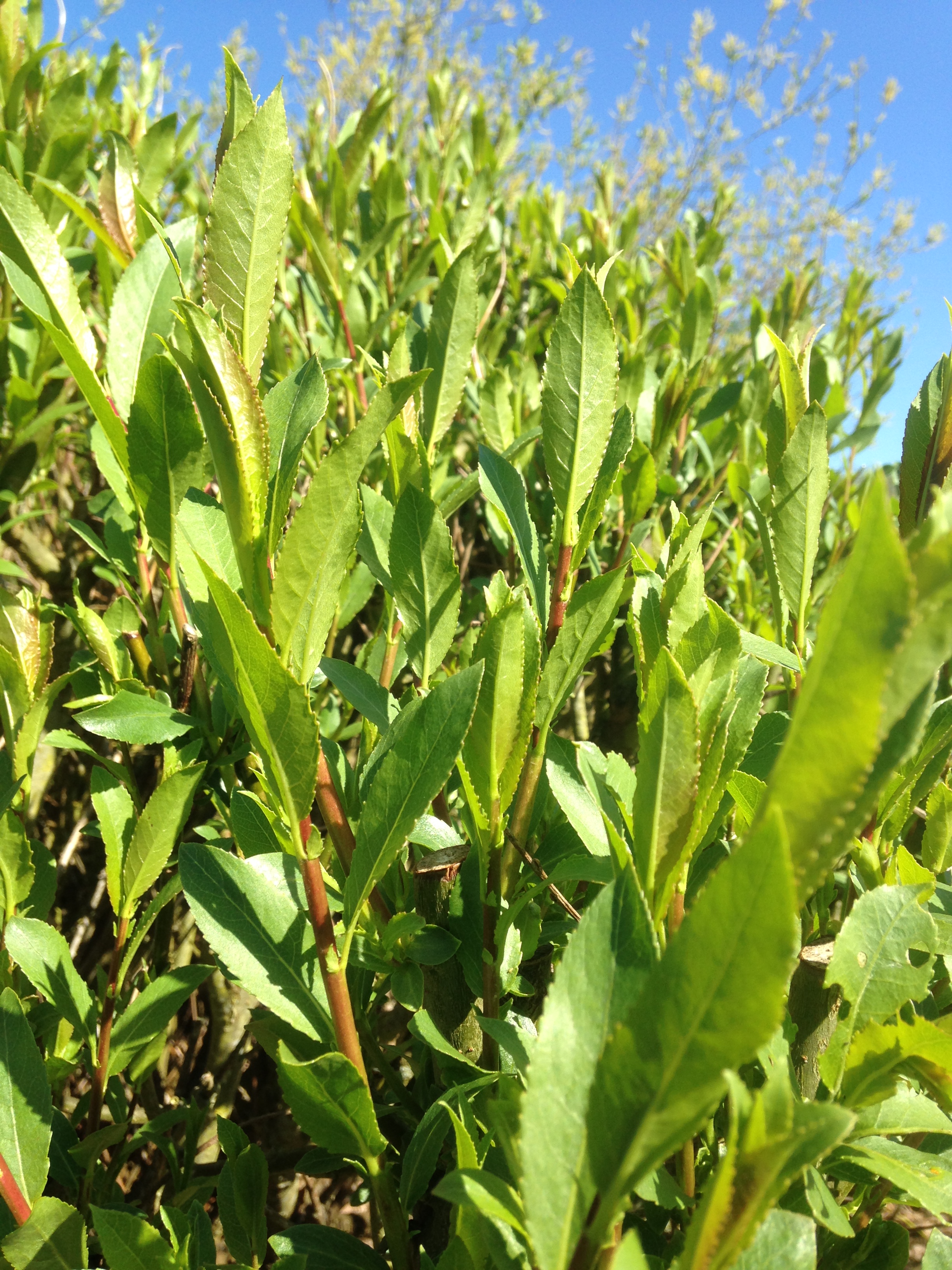
Salix Triandra 'Petite Grisette'
Salix Purpurea (Purple Willow)
Named for the colourful catkins. Generally a little smaller and slightly less vigorous than the above varieties, the more slender elegant stems more than make up for this if you have a more sheltered location. Long, narrow leaves and at least 4 to 6 ft (1.2 to 1.8 m) of fresh stem growth each year. It needs to be cut back annually to obtain the fresh growth, which is ideal for the straight, fine rods that make this form of willow very popular for basket making.
We offer three varieties of Purpurea :-
Salix Purpurea “Eugenii” Very slender green stems.
REF W781
Salix Purpurea “Lambertiana” Lime Green stems.
REF W782
Salix Purpurea “Abbeys” Orange/Red stems.
REF W783
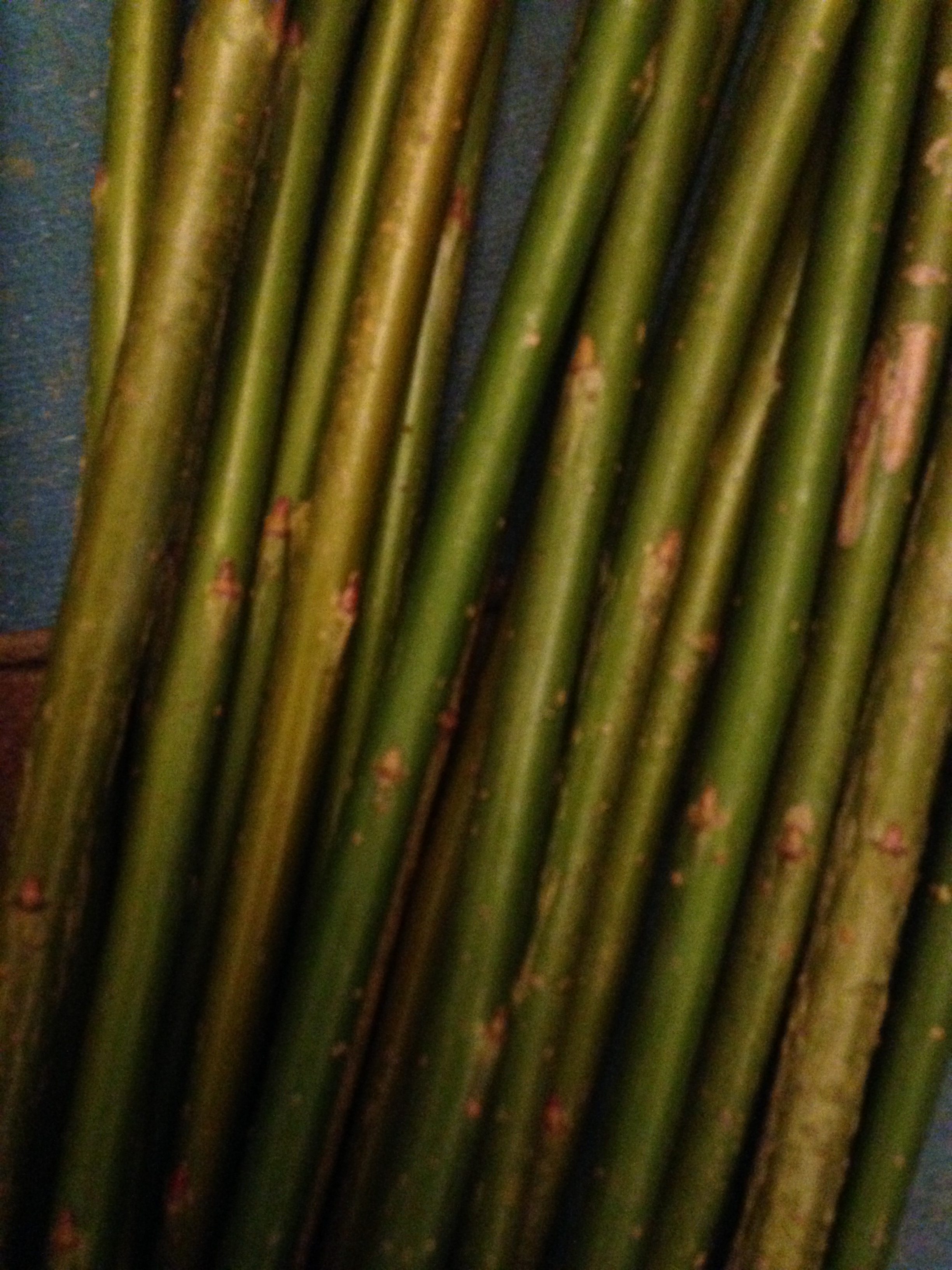
Salix Purpurea 'Eugenii'
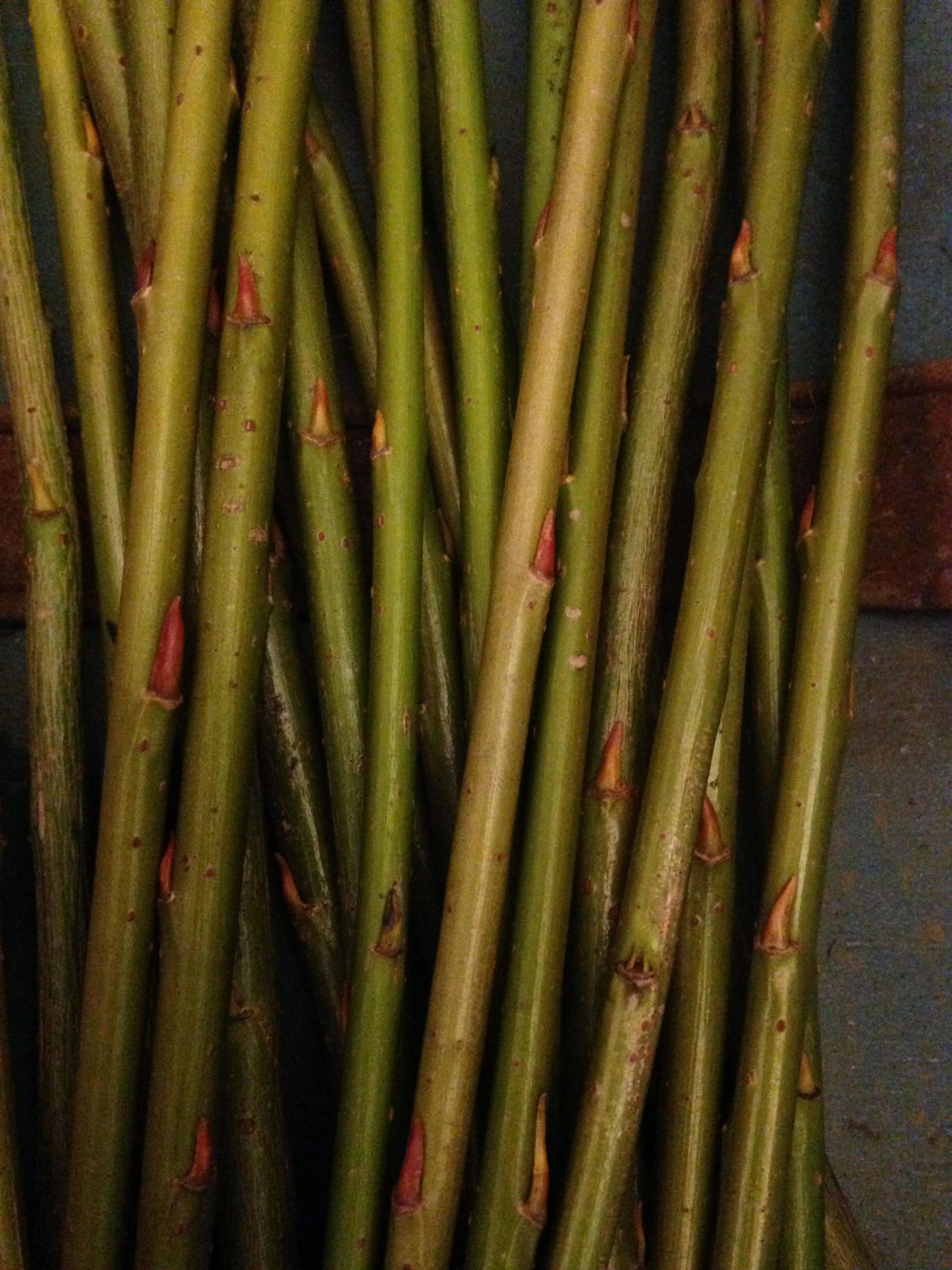
Salix Purpurea 'Lambertiana'
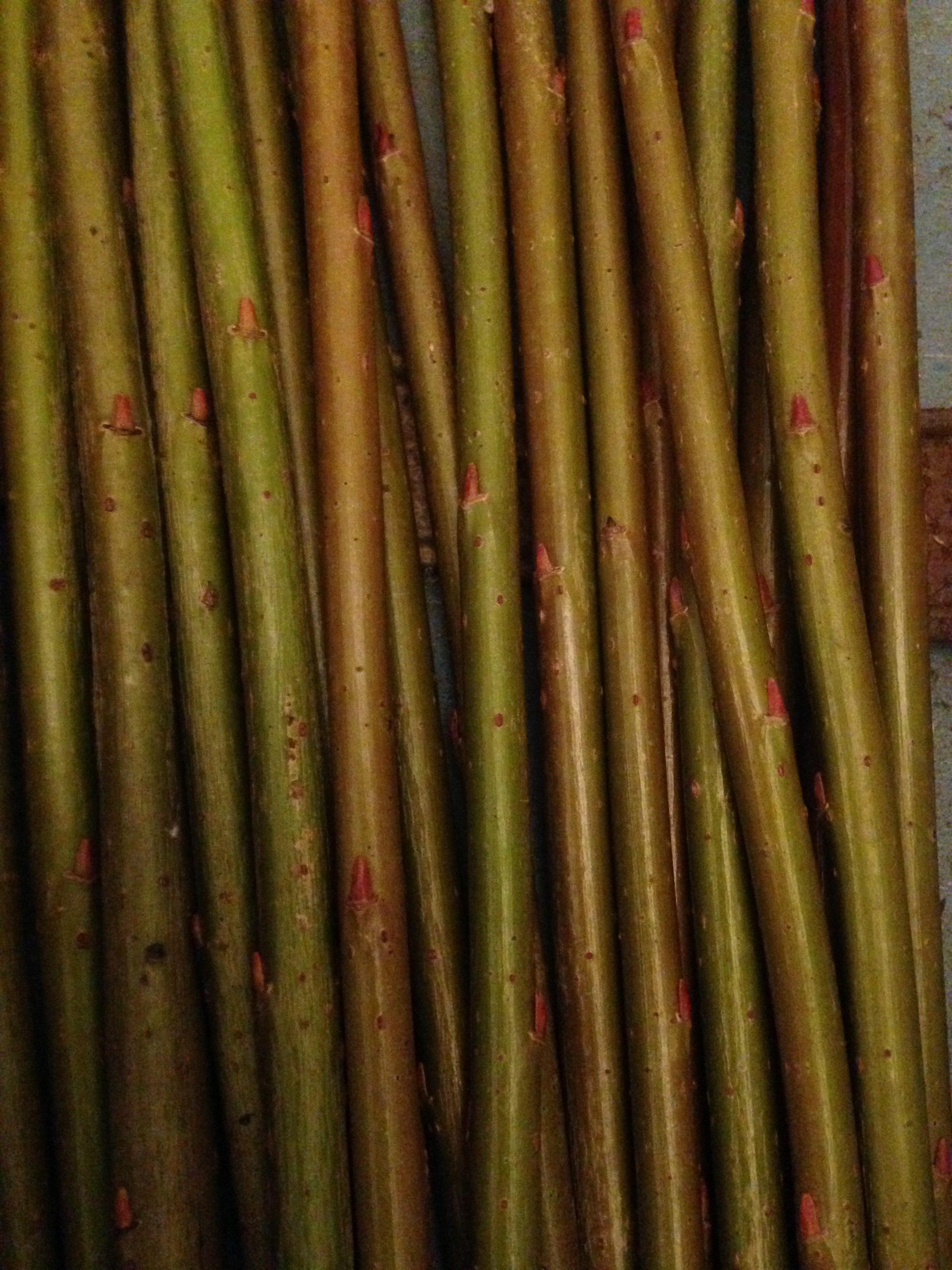
Salix Purpurea 'Abbeys'
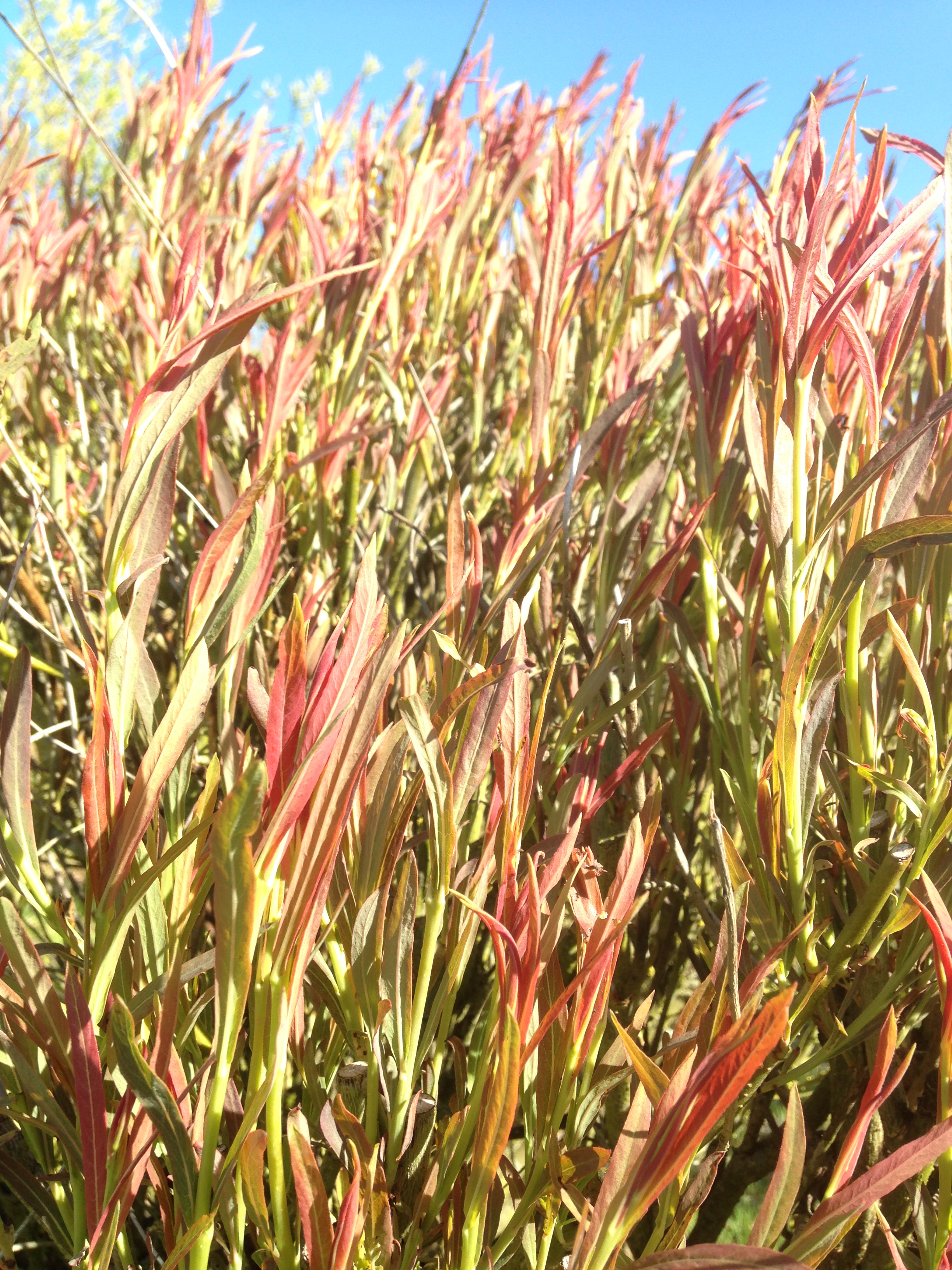
Salix Purpurea 'Eugenii' (New Spring growth)
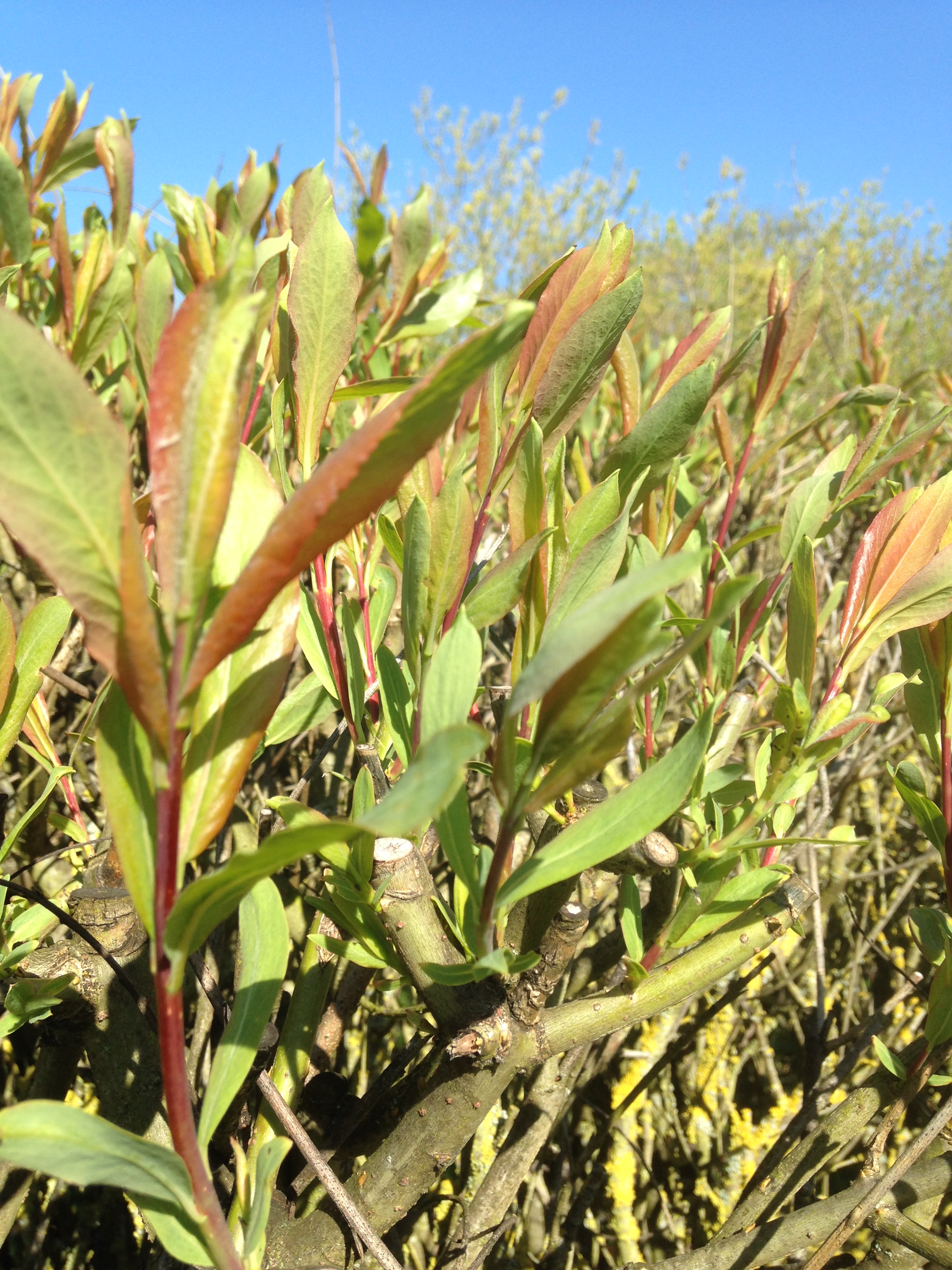
Salix Purpurea 'Lambertiana' (New Spring growth)
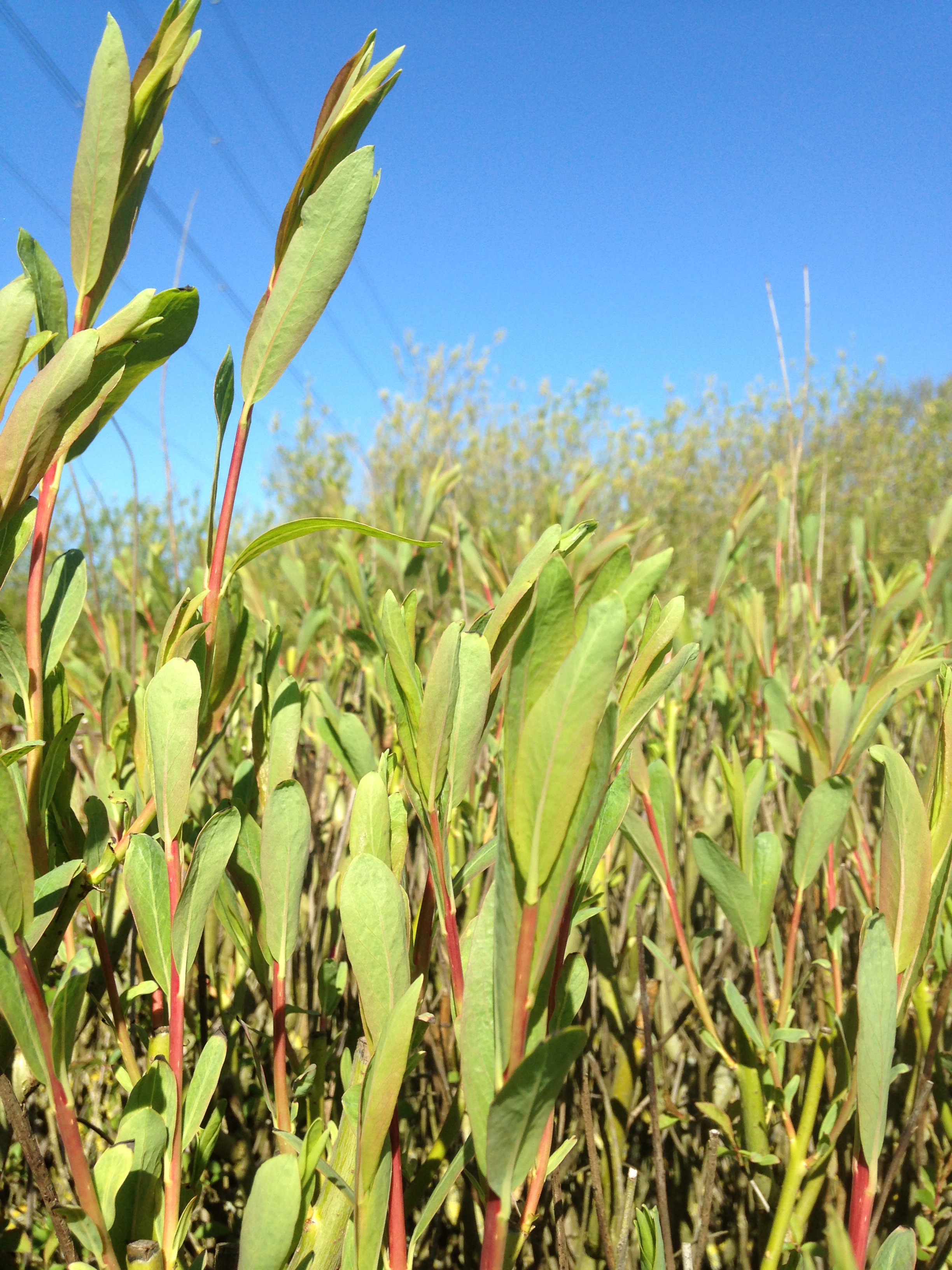
Salix Purpurea 'Abbeys' (New Spring growth)
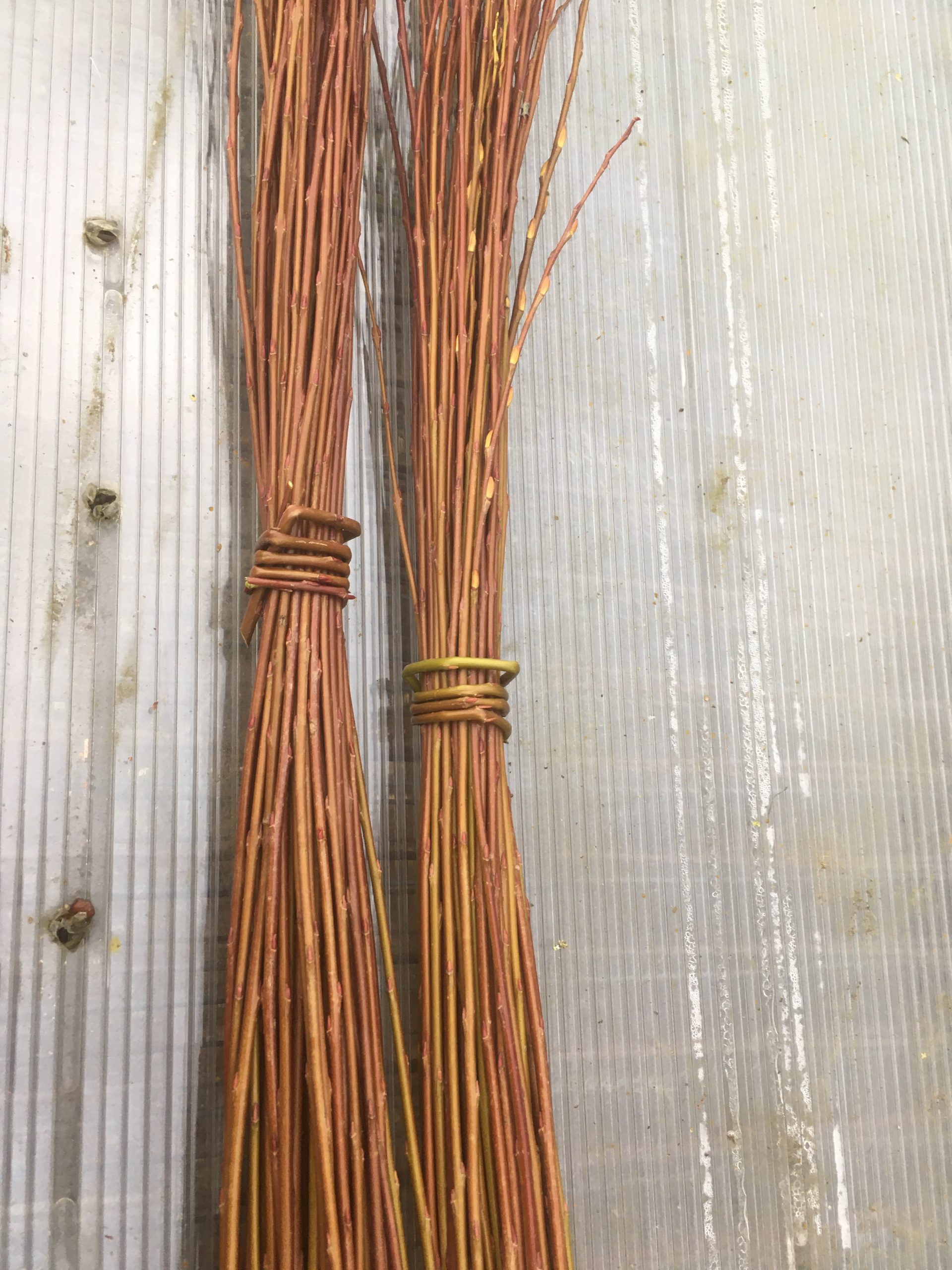
Fresh cut whips of Salix Purpurea Abbeys
Salix Candida (American hoary-leaved willow or sage leaf willow)
A very attractive more ‘shrubby’ willow with thicker stems, growing 4 to 5 ft (1.2 to 1.5 m) per year in sheltered locations. It has large “furry” grey-green leaves, with plump yellow catkins in the Spring. Whilst ornamental in the garden, it is not a variety generally used for weaving, but can be used for decorative cut stems as well as additions to weaving projects.
REF W784
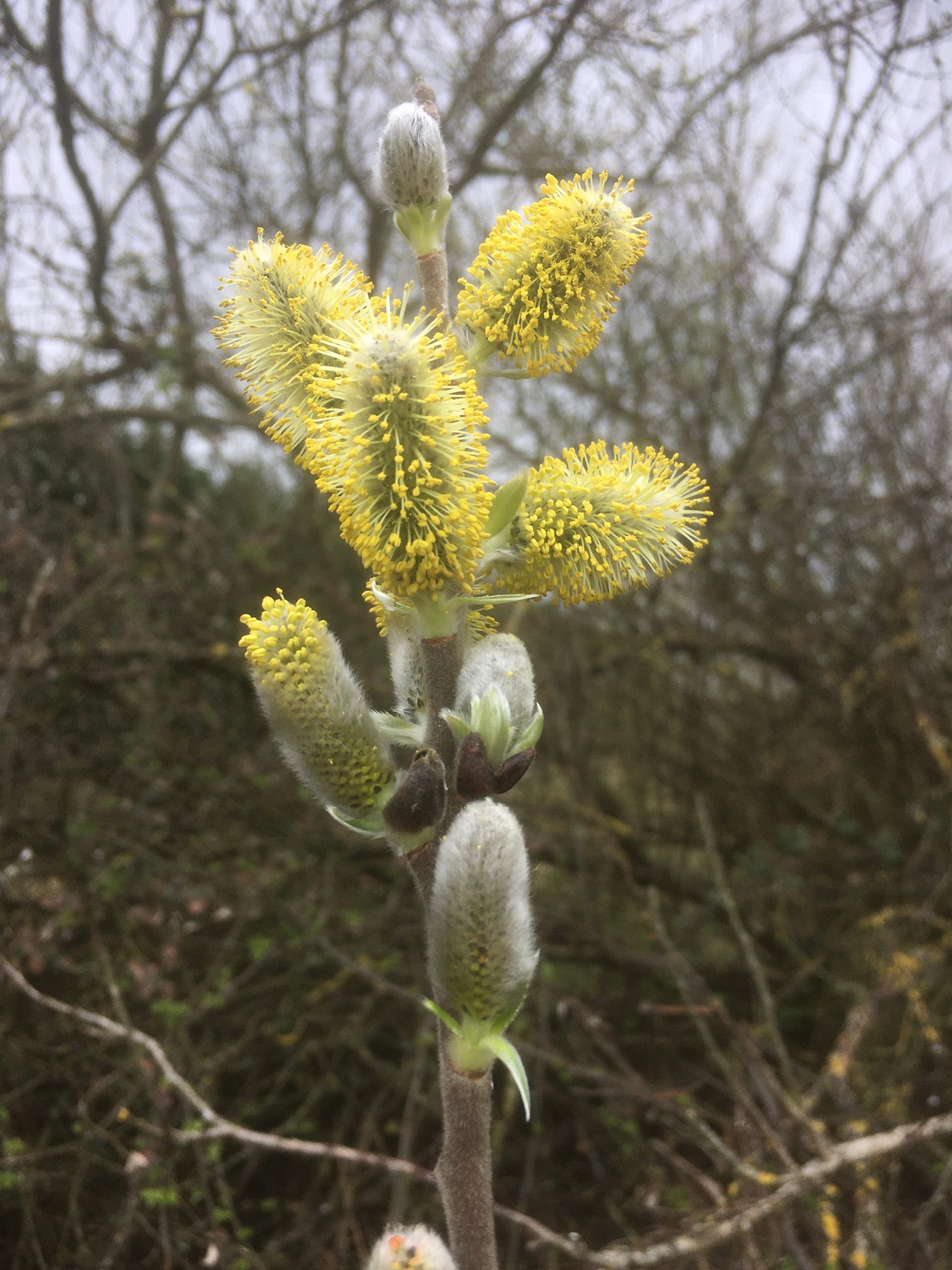
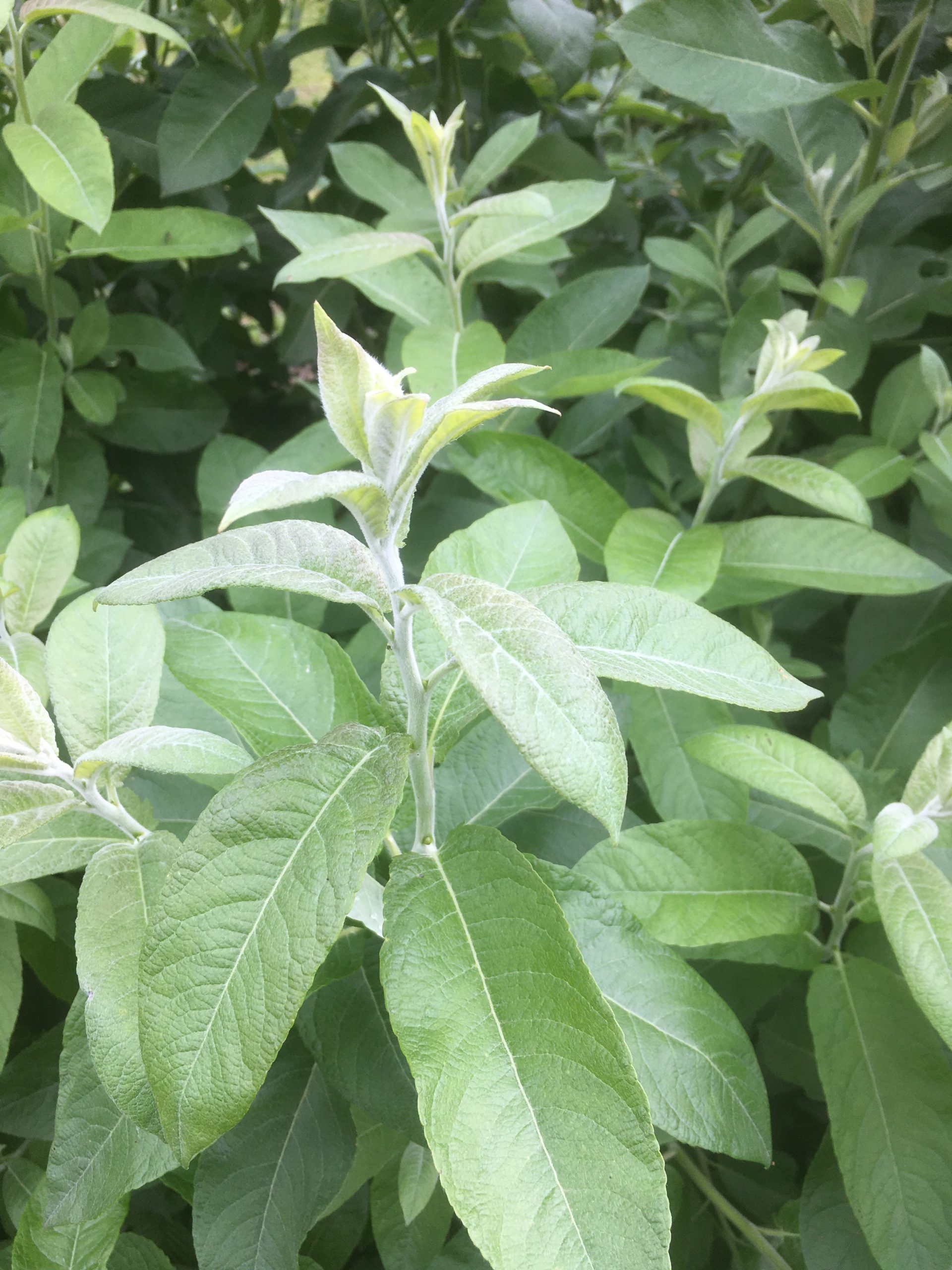
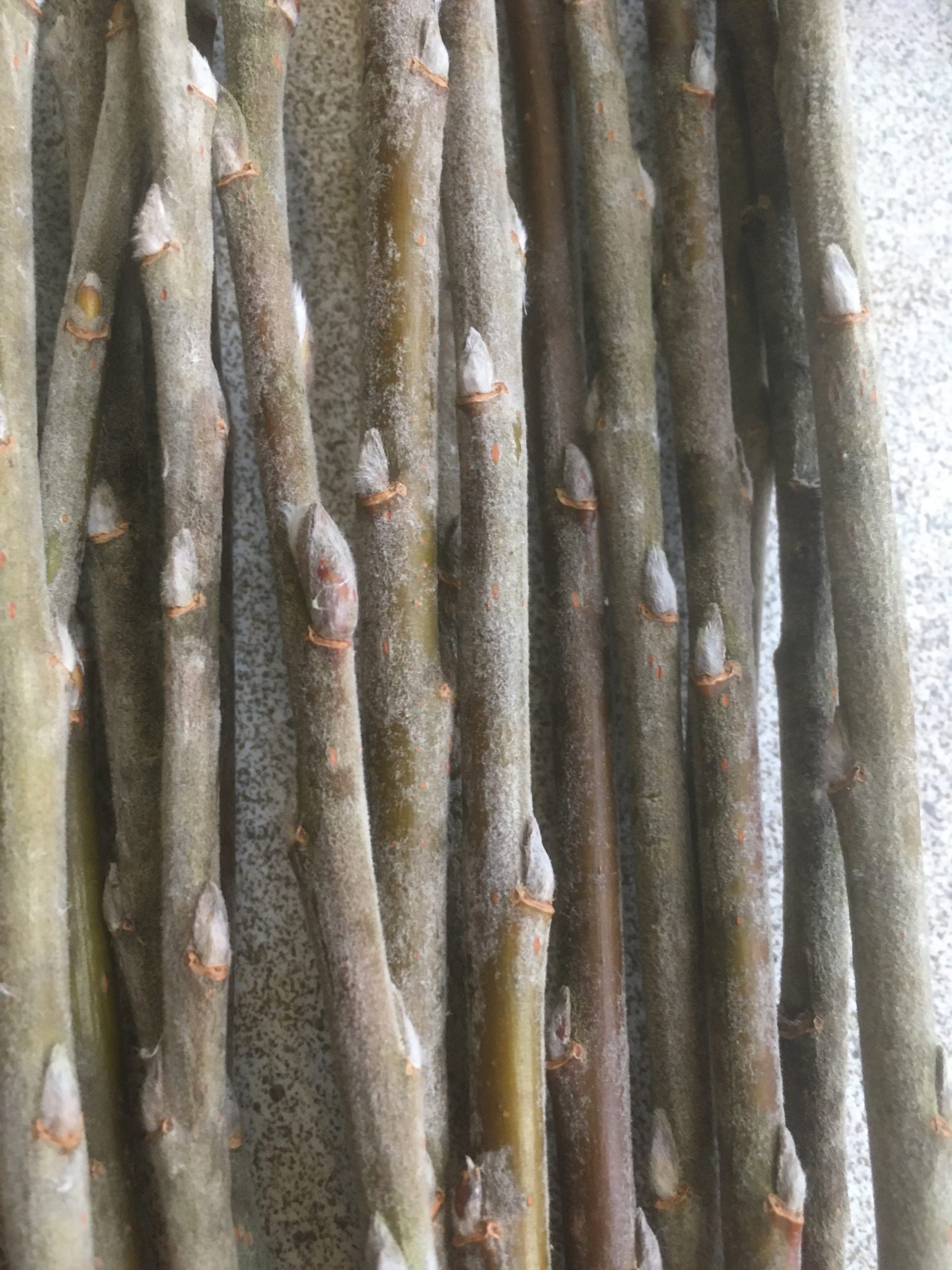
Salix Matsudana ‘Tortuosa’ (Corkscrew, Contorted or Dragons Claw Willow)
An initially slower-growing, but stunning form of willow, with curling/twisting stem growth making a wonderful specimen tree. Its growth is more vigorous once the plant is established, but regular pruning can be used to maintain a more compact size if preferred and this also encourages the extra “curly” younger growth. It has glossy, green, slightly curled, narrow leaves which are retained much later than the other forms of willow we have and which come again very early in the spring.
REF W785
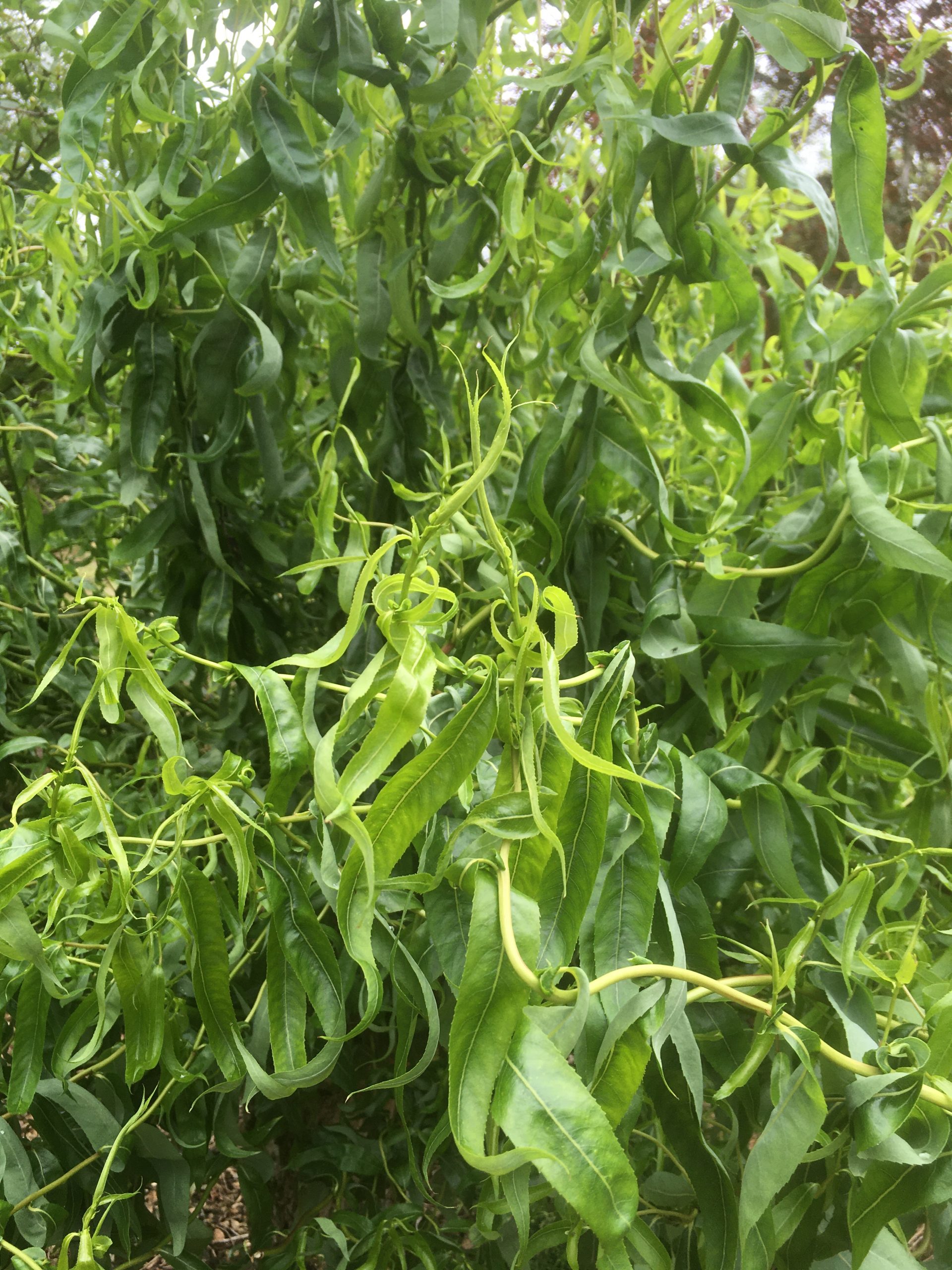
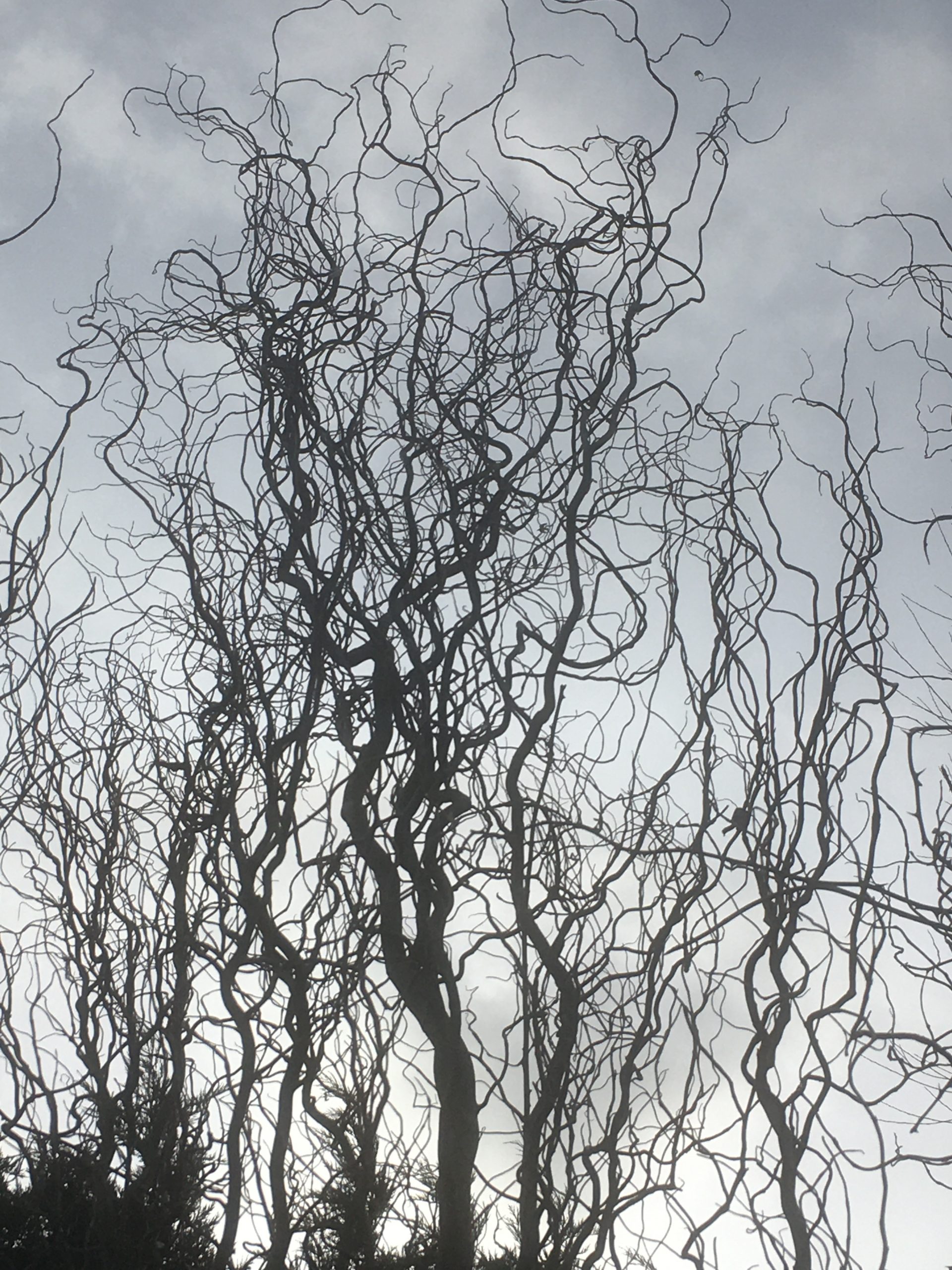
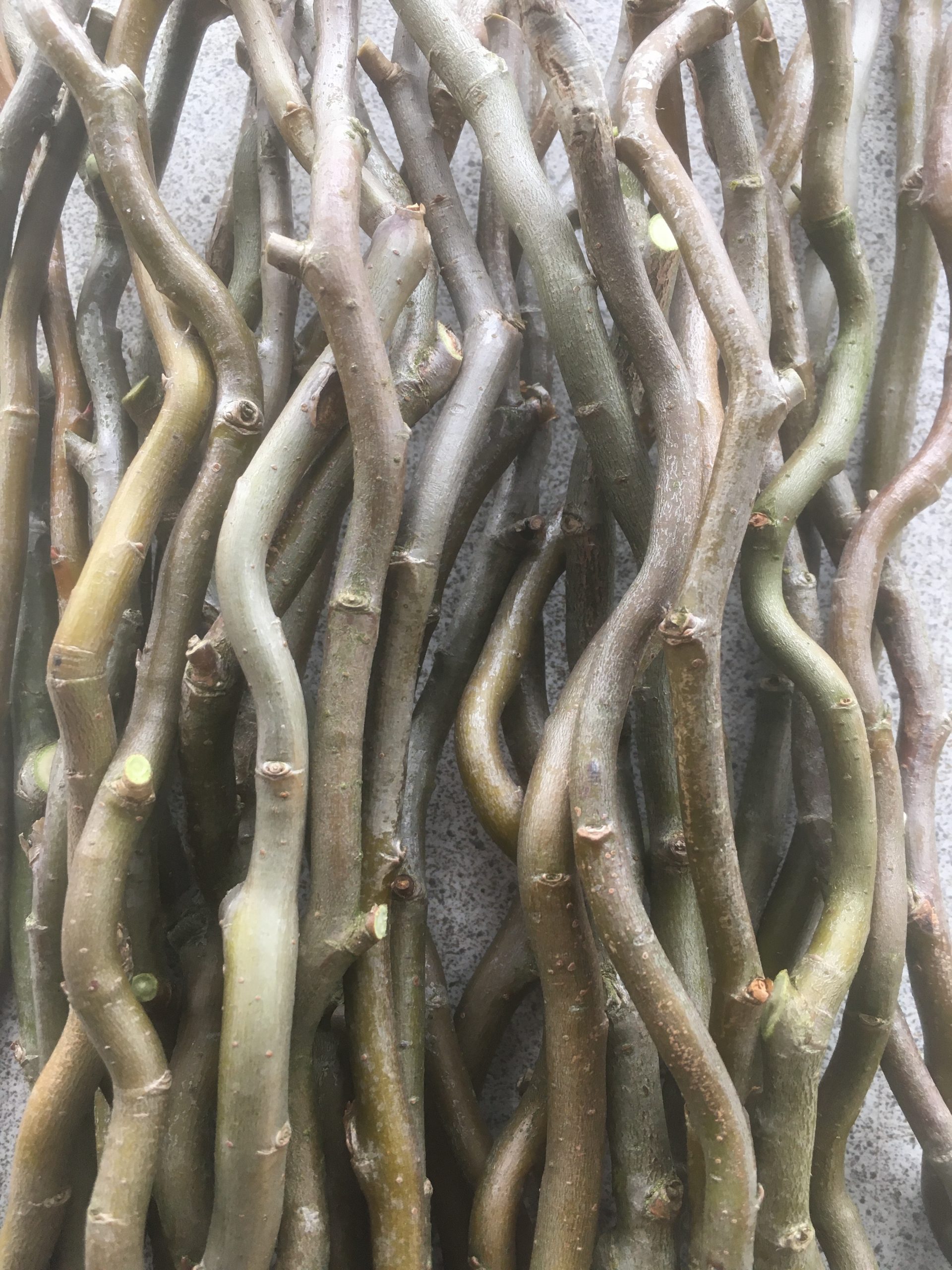
Salix Burjatica ‘Germany’
A fairly vigorous variety originally grown for bio-mass/fuel with slightly ‘furry’ stems that can grow up to 9 ft (2.7 m) long in one year (making it an alternative source of long whips for creating living willow structures).
It has quite large (but not ‘showy’ like Candida and Daphnoides Aglaia) catkins in late winter.
Ref W786
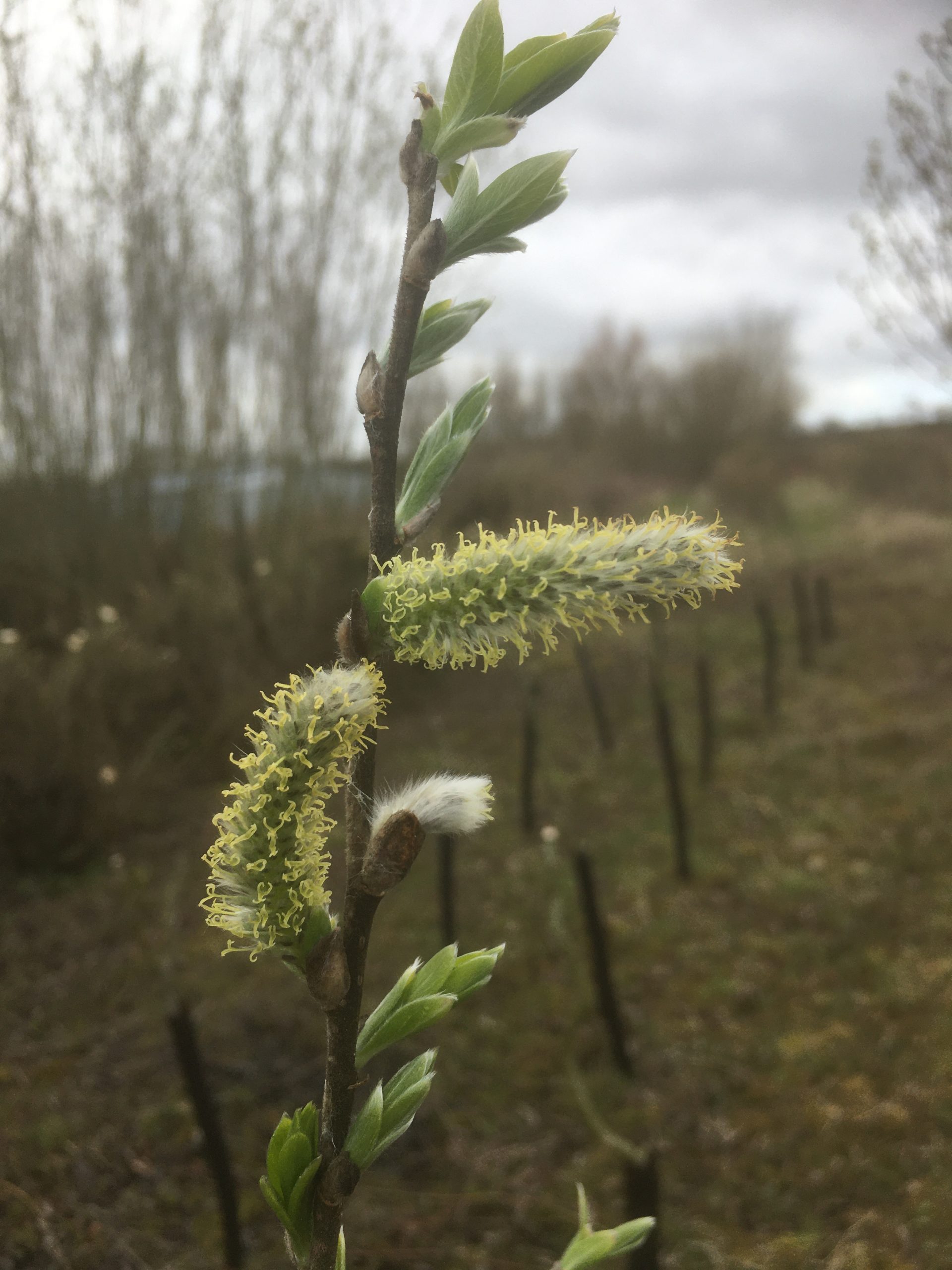
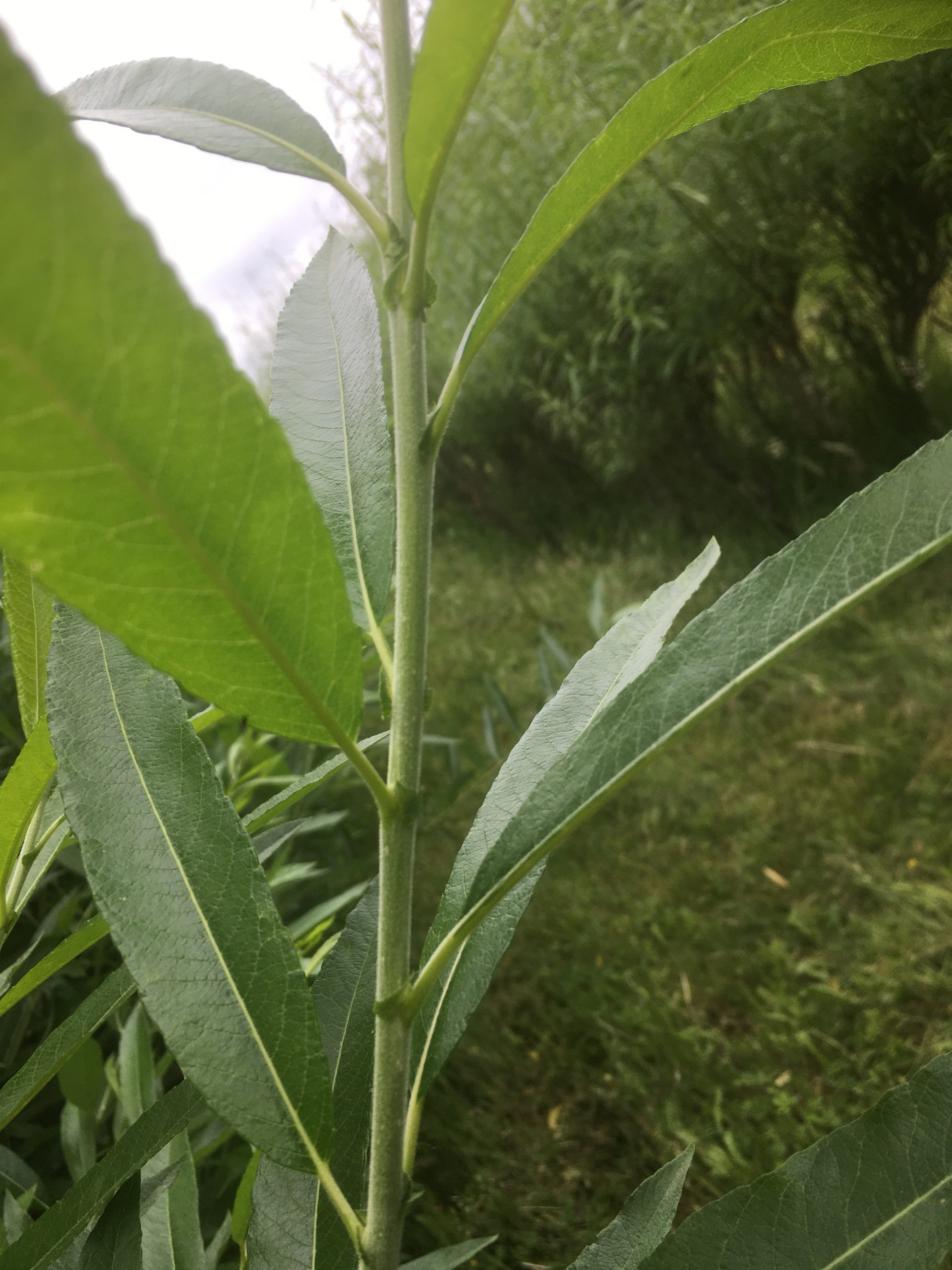
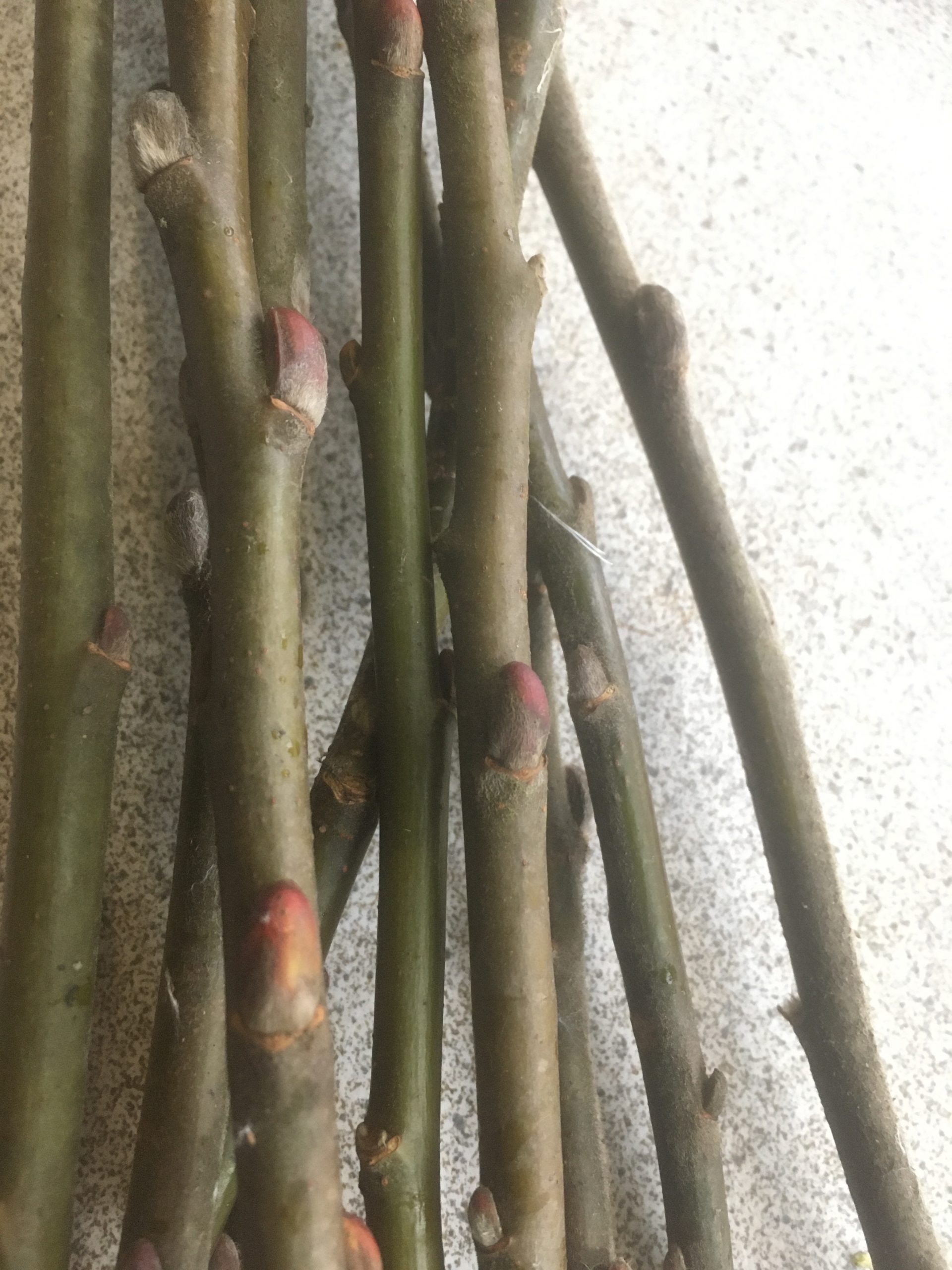
Coloured Willow Varieties :
Salix Alba Vitellina (Golden Willow) The slender whips are popular for basketmaking, but are most widely grown for the bright yellow stem colour for winter interest. They should be cut back annually in the spring to obtain the brightly coloured fresh growth. Usually the new stem growth will reach at least 6 ft (1.8 m) long in one season.
REF W787
Salix Alba Britzensis (Coral Bark Willow)
Mainly grown for the bright orangey/red stem colour as winter interest. They should be cut back annually in the spring to obtain the brightly coloured fresh growth. Usually the new stem growth will reach at least 6 ft (1.8 m) long in one season.
REF W788
Salix Daphnoides Aglaia (Violet Willow)
Mainly grown for the deep purple stem colour for winter interest and the large abundant silver catkins in late winter/early spring. Commonly used to attract pollinating insects to orchards. They should be cut back annually in the spring to obtain the brightly coloured fresh growth. The new stem growth can reach 9 ft (2.7 m) long in one season.
REF W789
Salix Fragilis (Crack Willow)
Two-tone olive-green to yellow/orange stems. Cut back annually in the spring to obtain the brighter coloured fresh growth. Usually the new stem growth will reach at least 6 ft (1.8 m) long in one season.
REF W790

Salix Alba Vitellina (Yellow) & Salix Alba Britzensis (Red) growing at Willows Nursery.
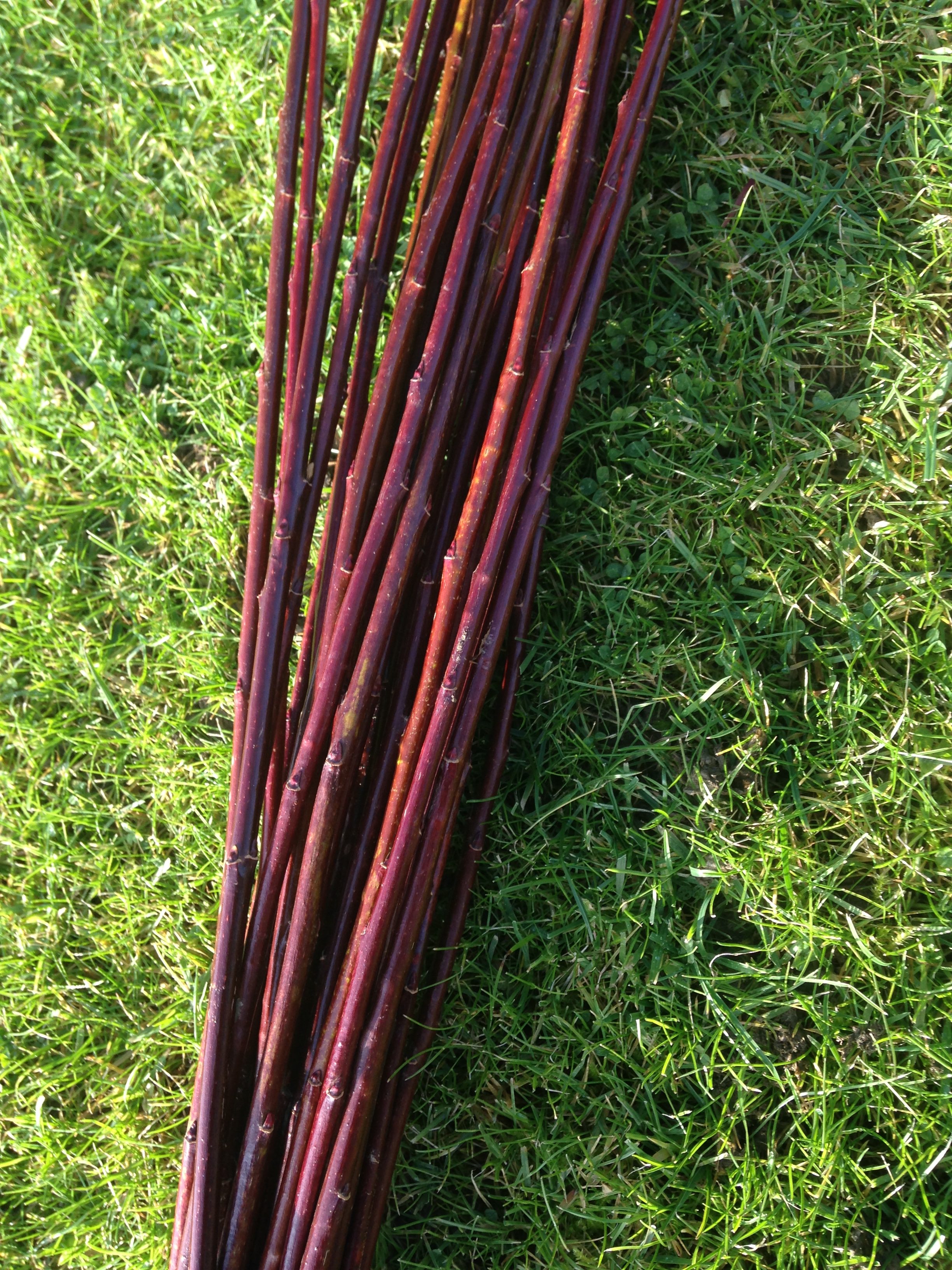
Salix Daphnoides Aglaia (Purple)
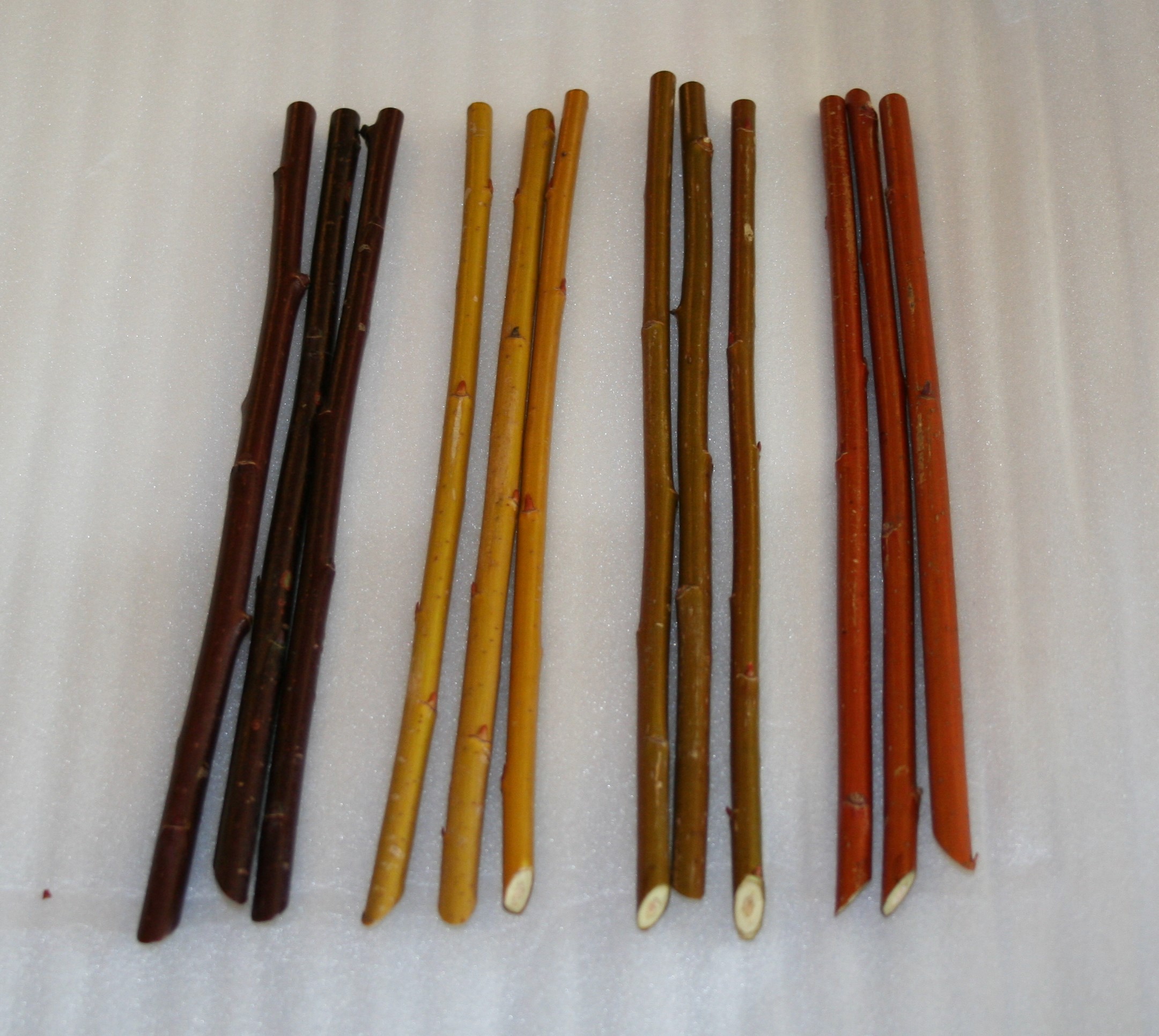
Examples of short willow cuttings of Salix Daphnoides Aglaia (Purple), Salix Alba Vitellina (Yellow), Salix Fragilis (Olive) and Salix Alba Britzensis (Red).
Short willow cuttings are sold in 10’s of the same variety.
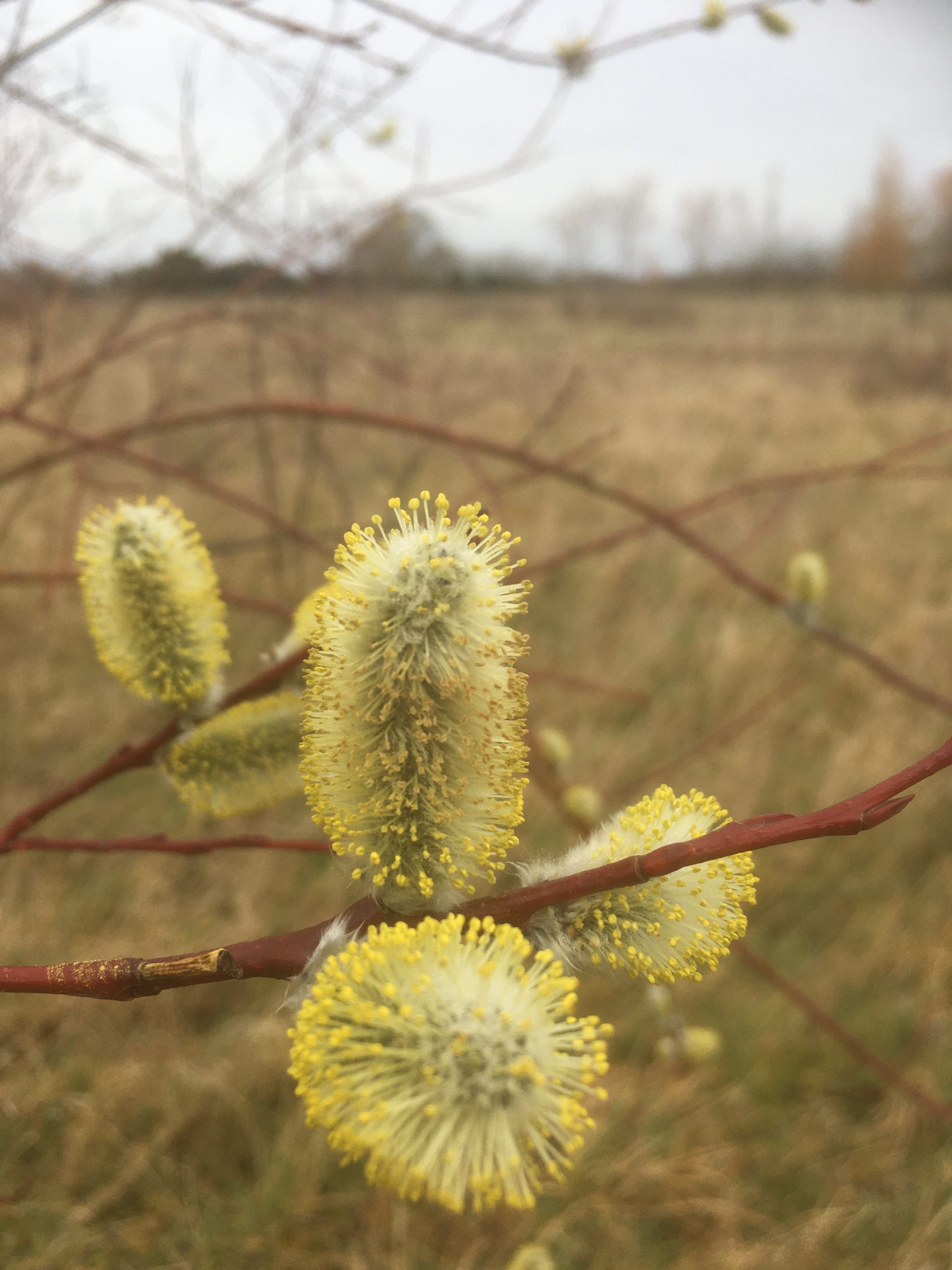
Salix Daphnoides Aglaia catkins
A good source of early pollen for bees and other insects.
You can place an order securely in our Online Shop
or you can telephone us on 01536 791371
or email us to anne@willowsnursery.co.uk